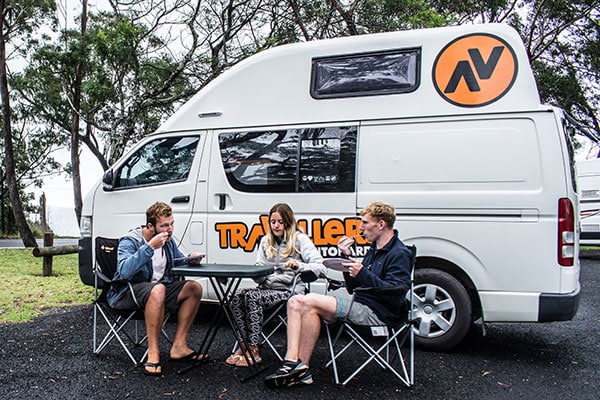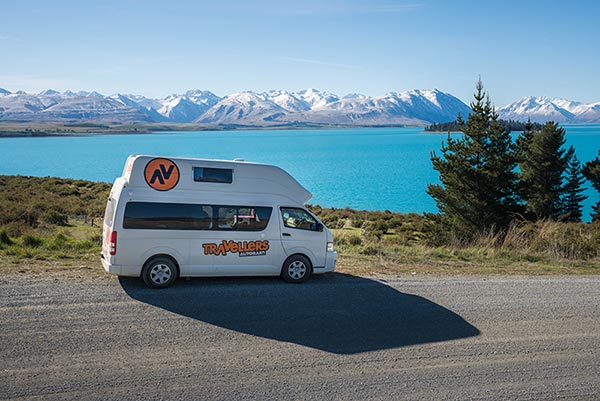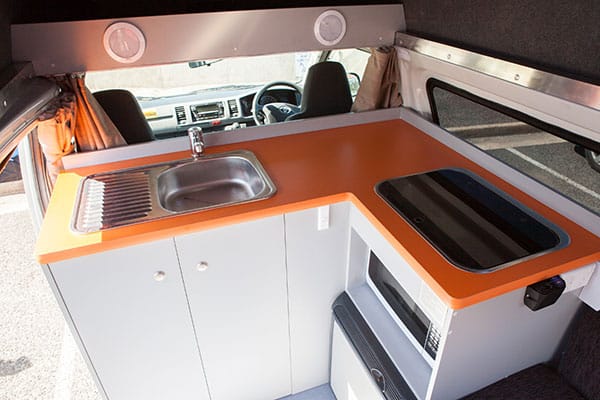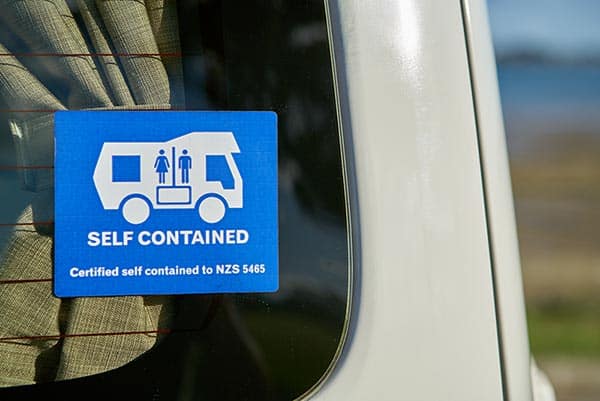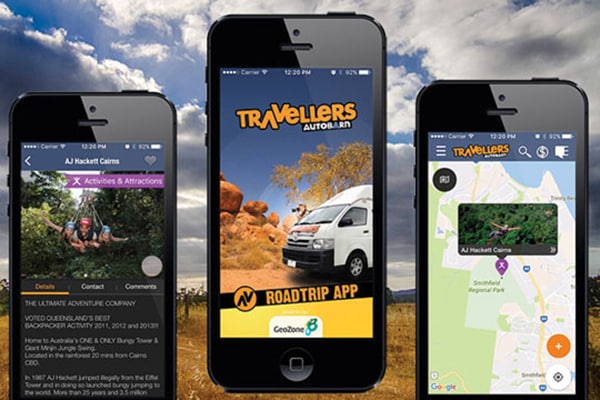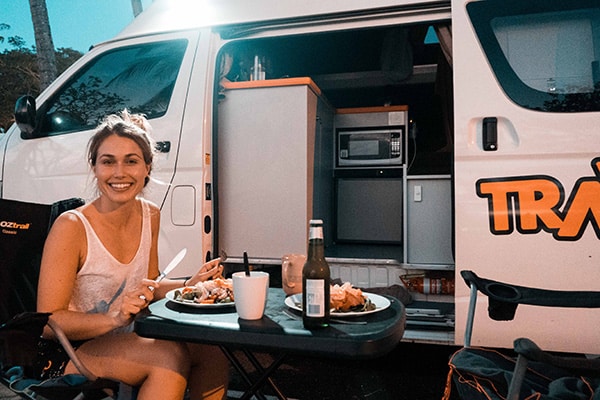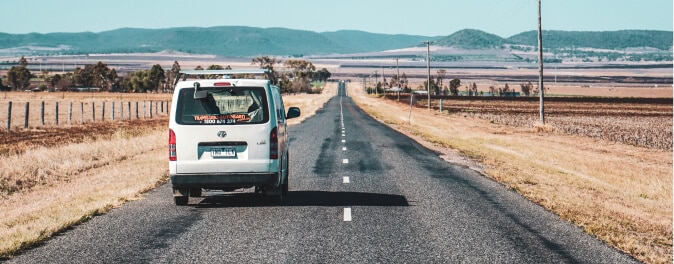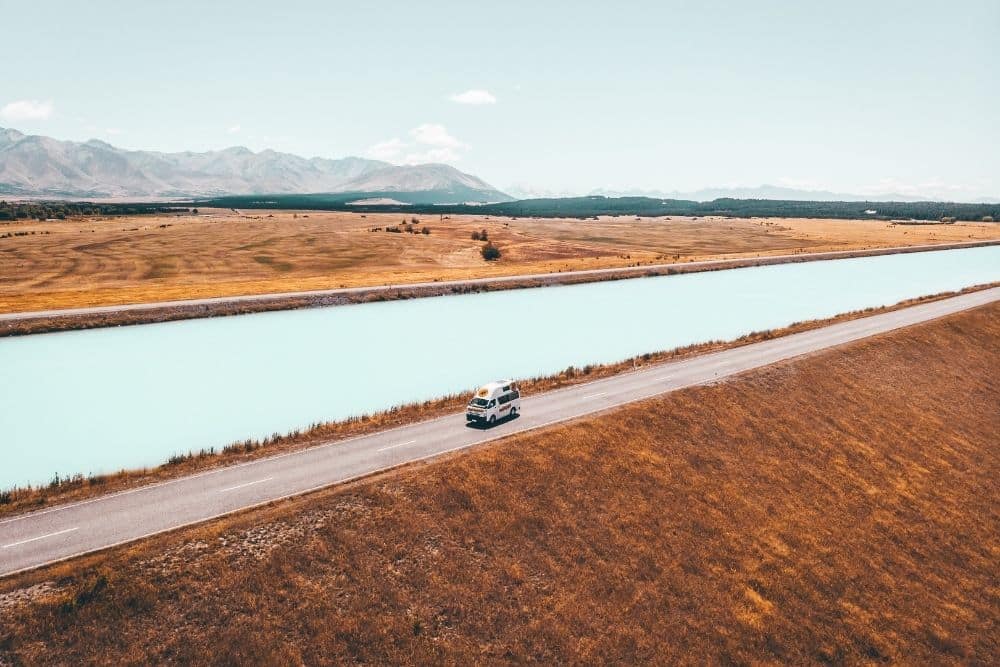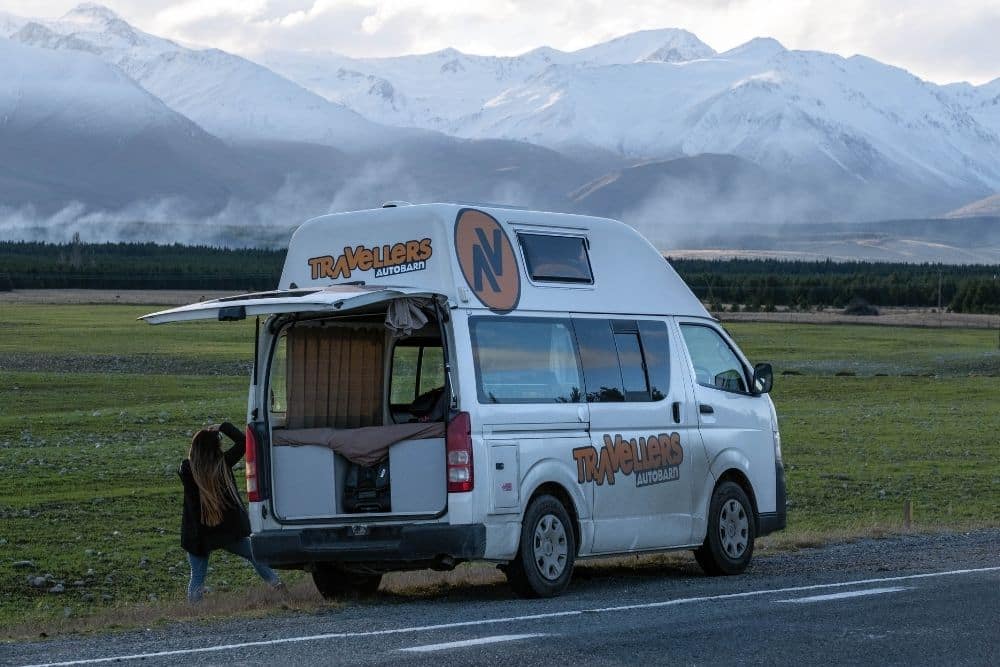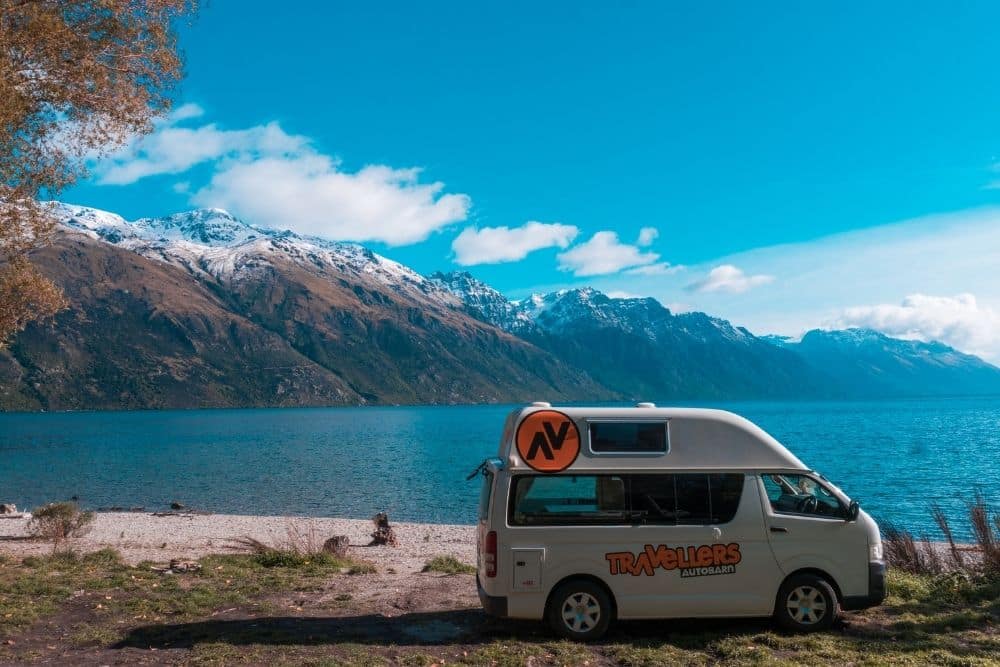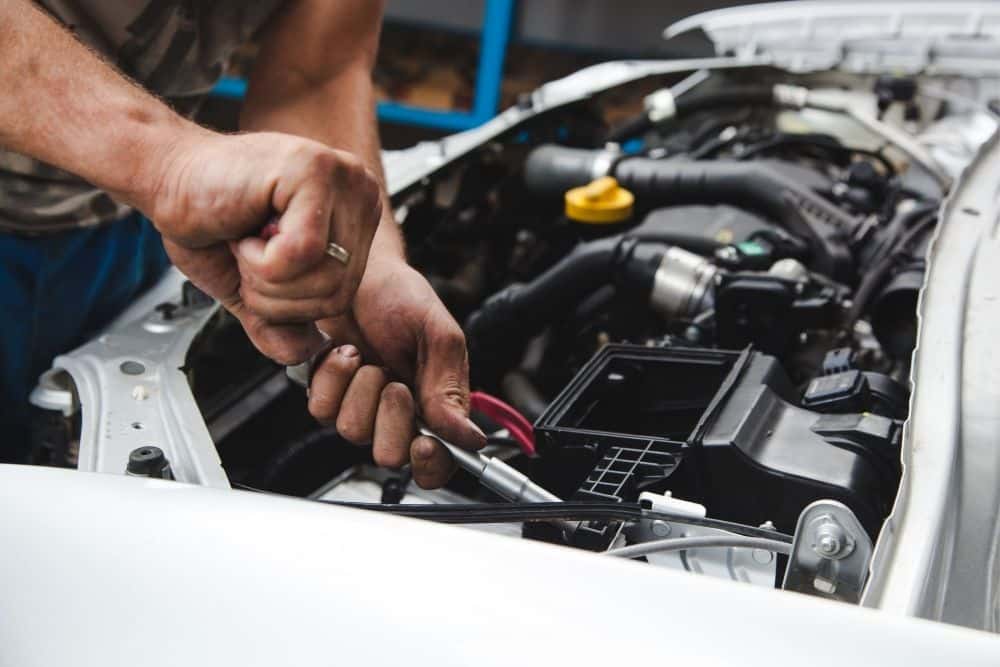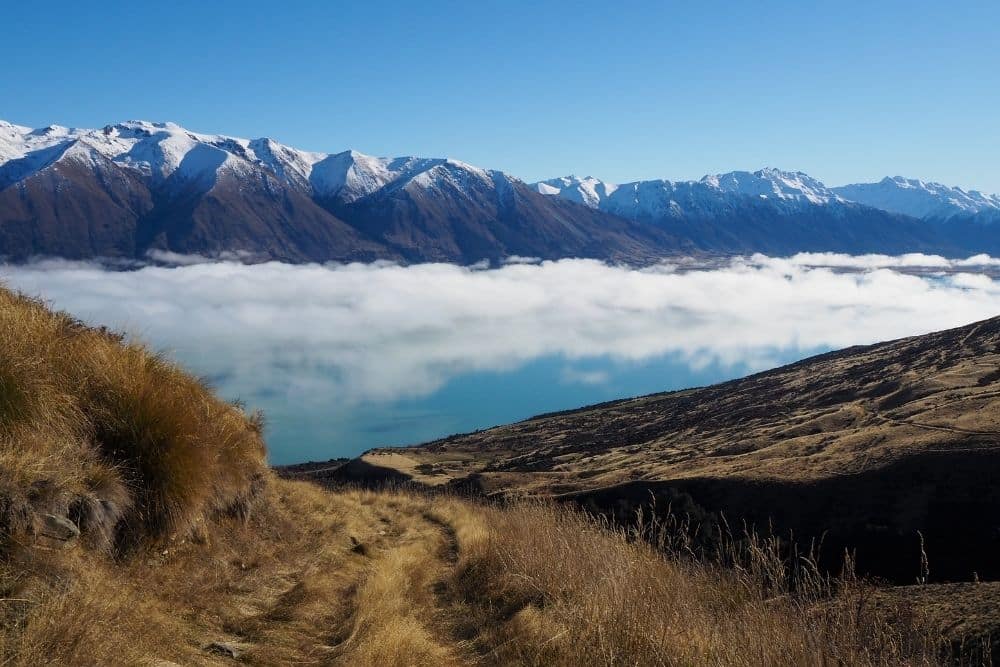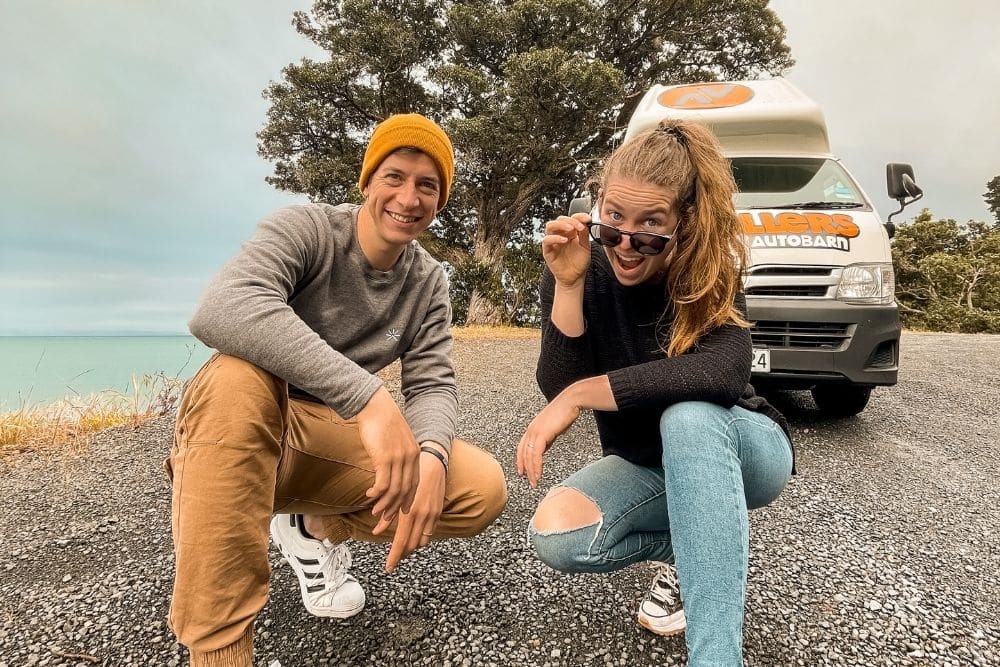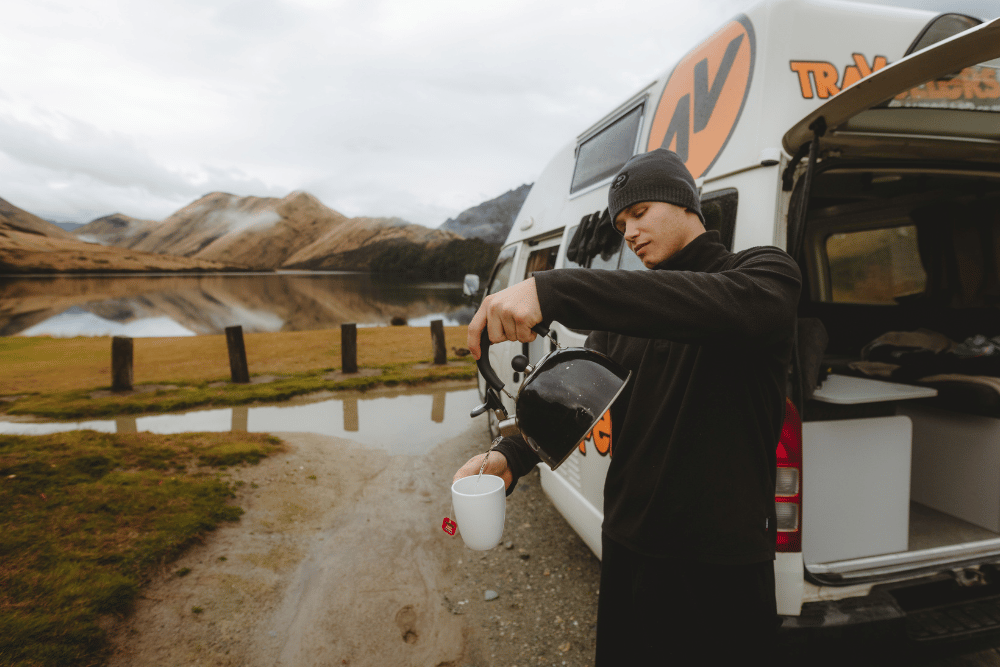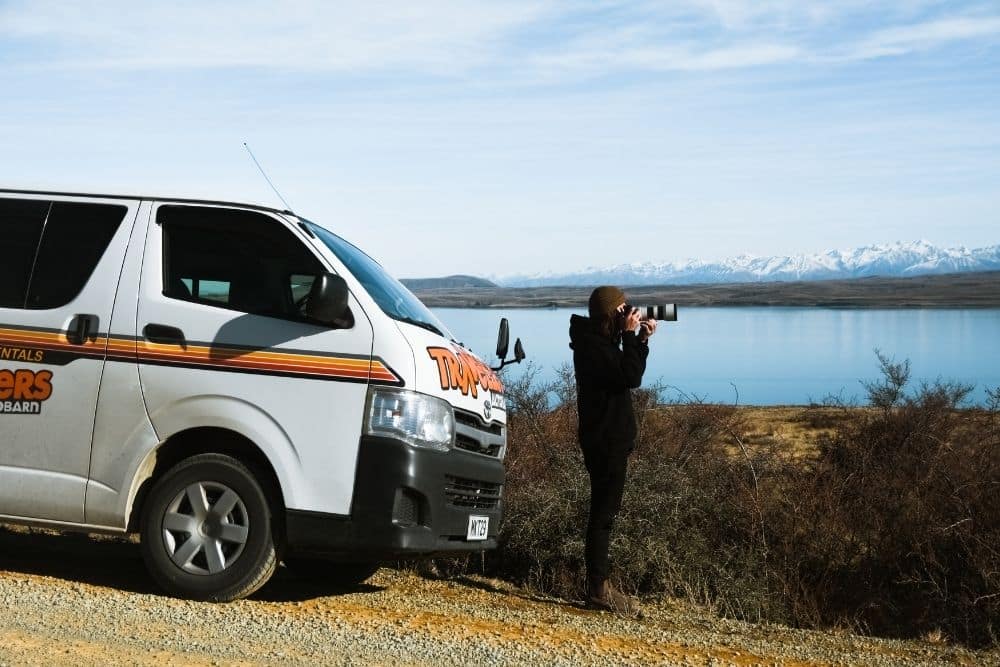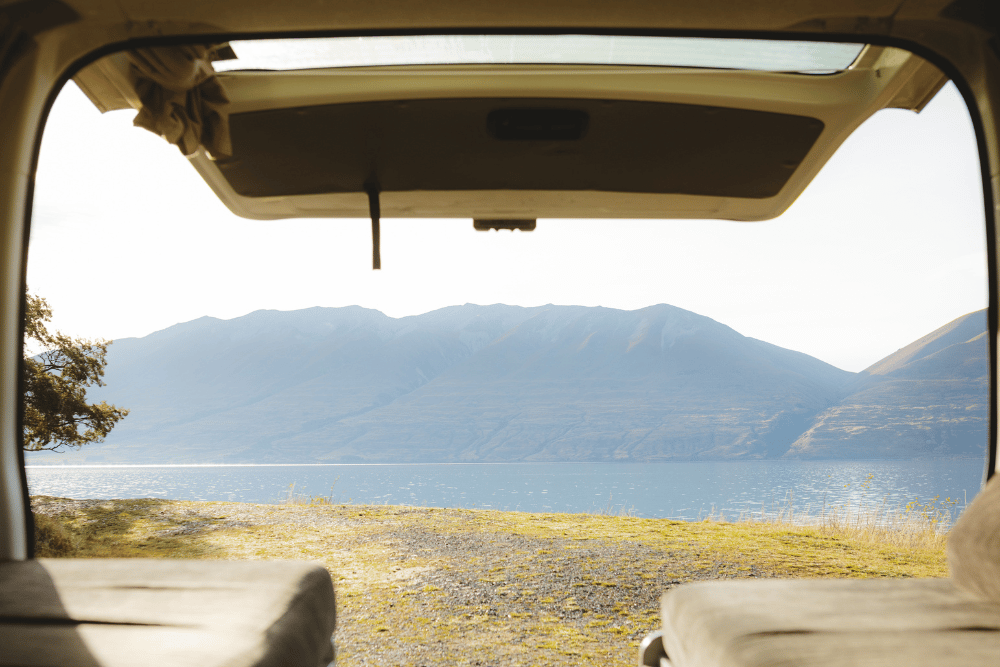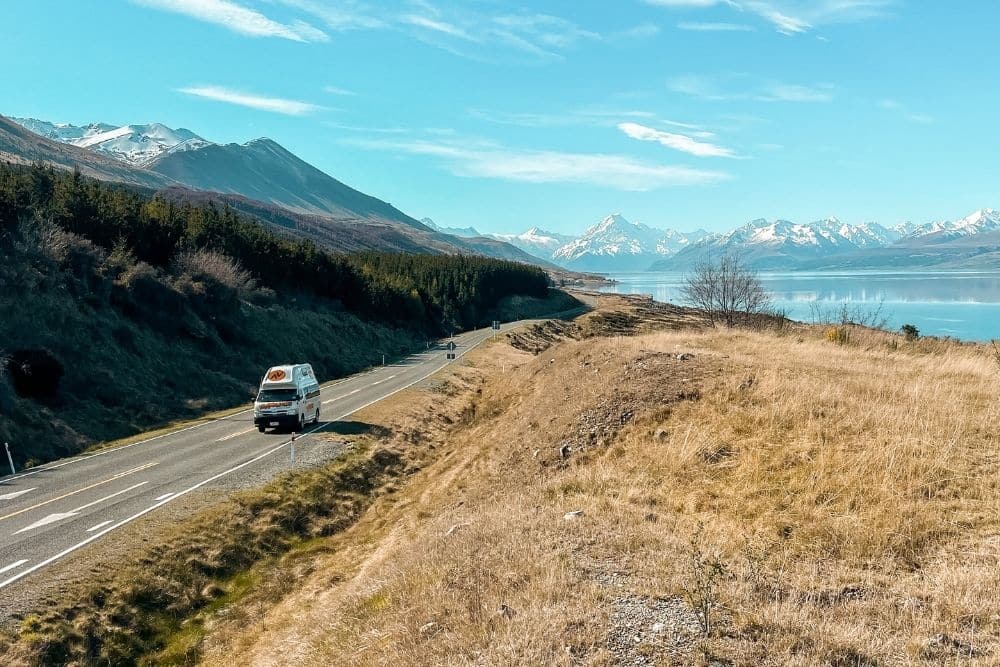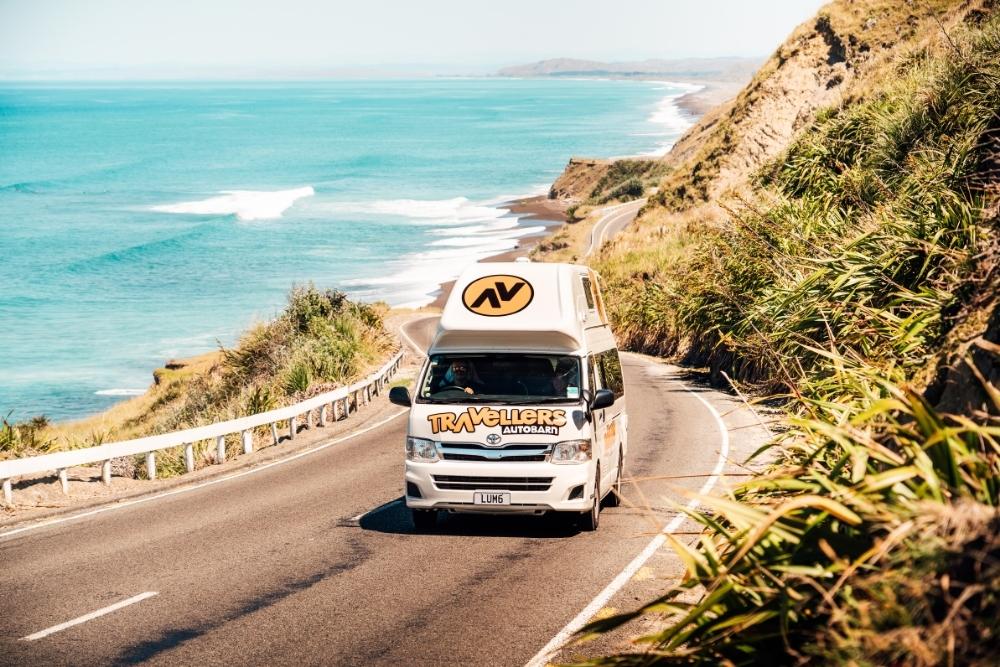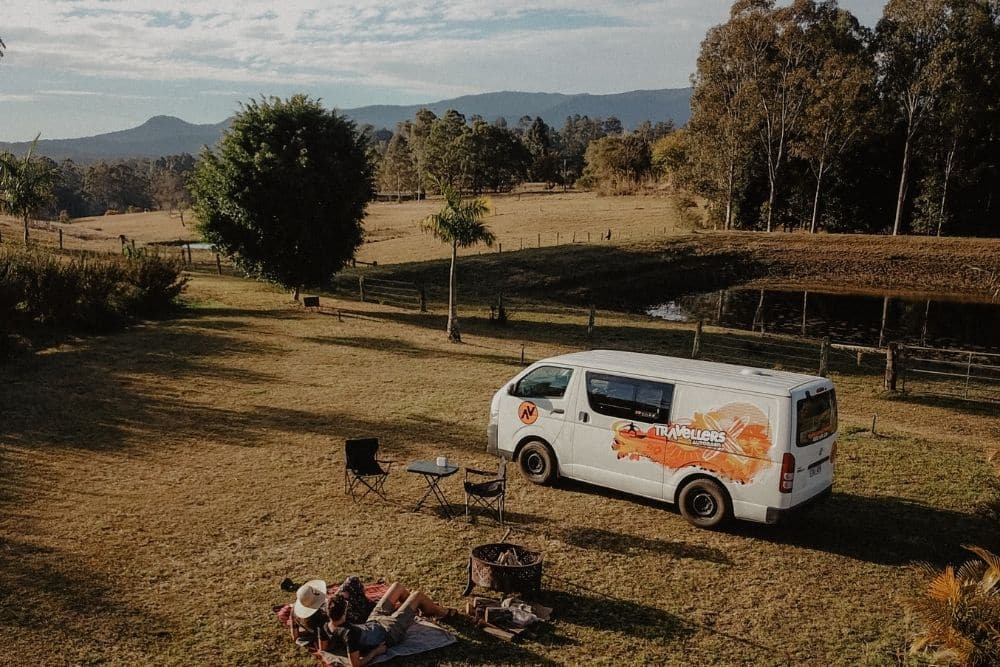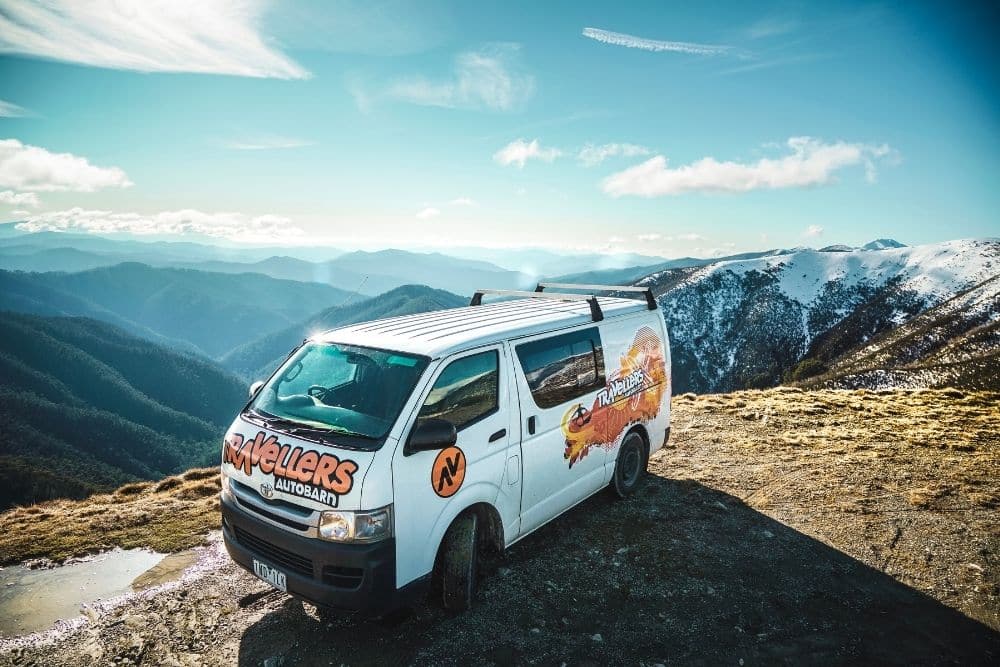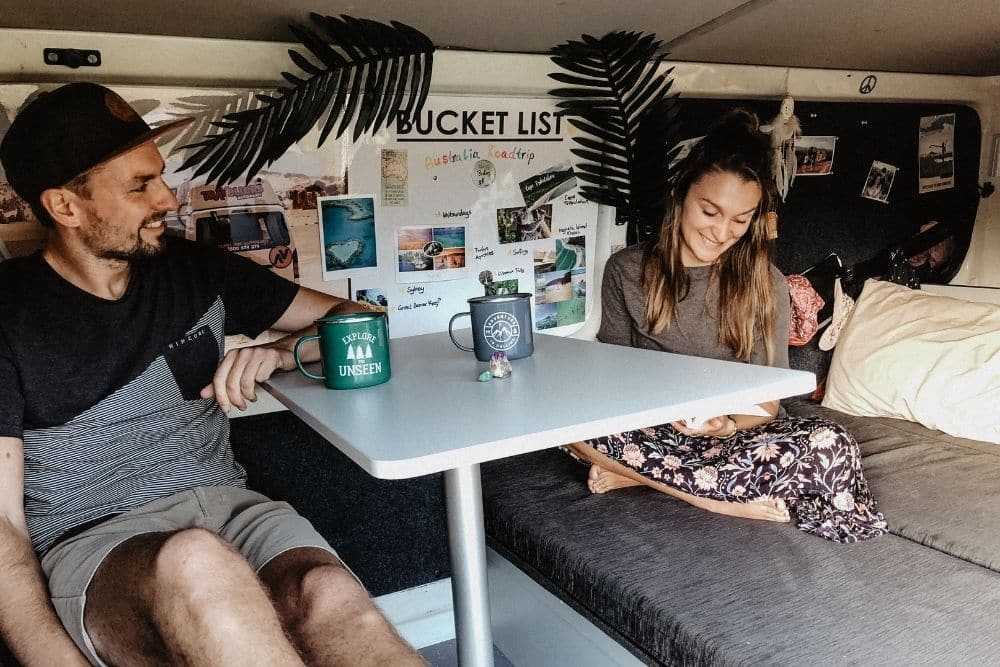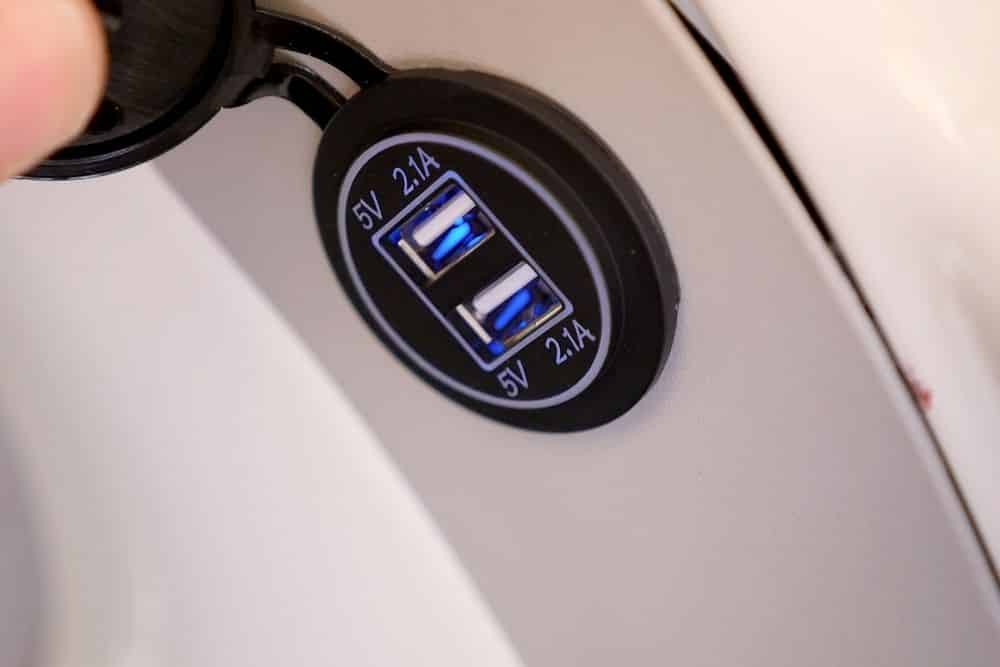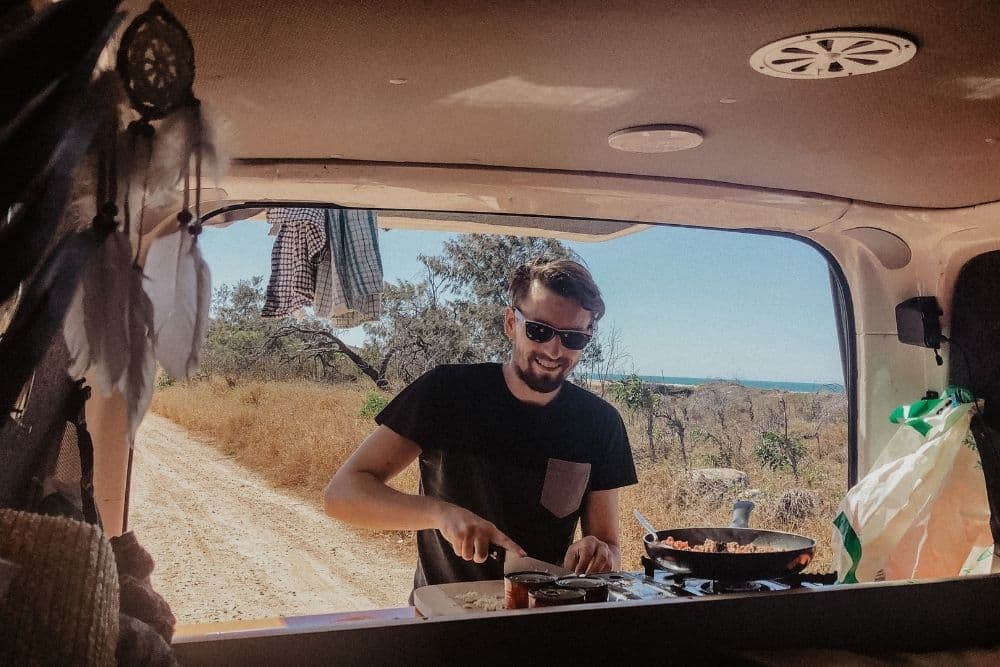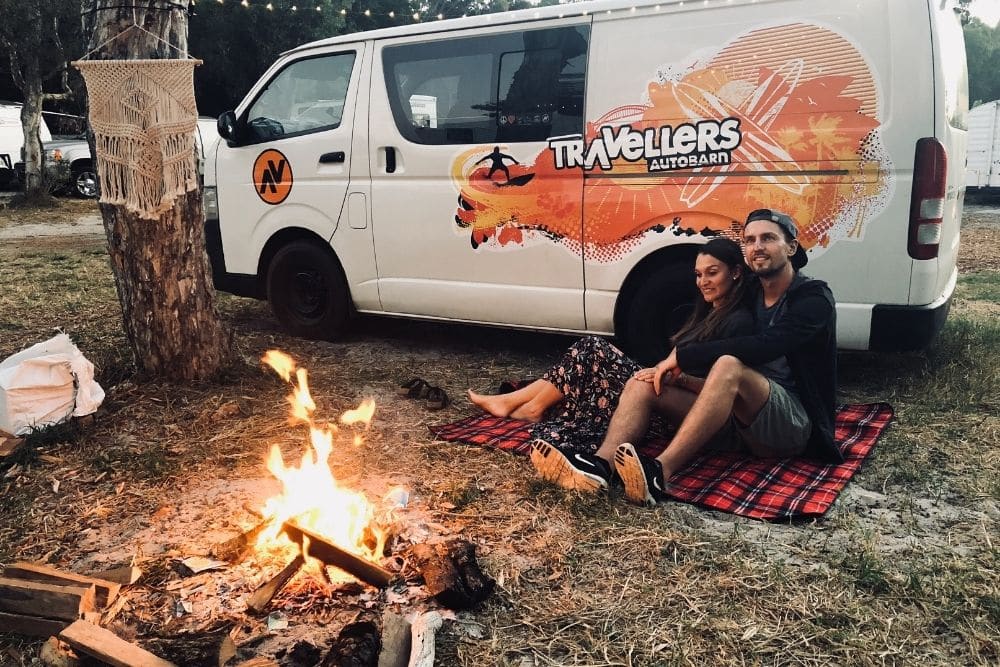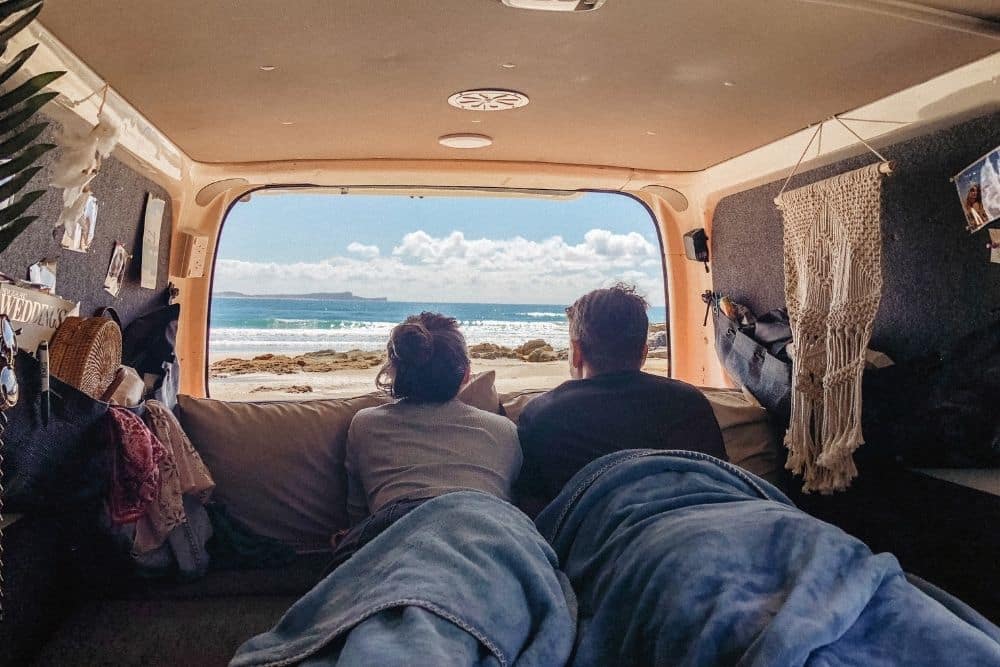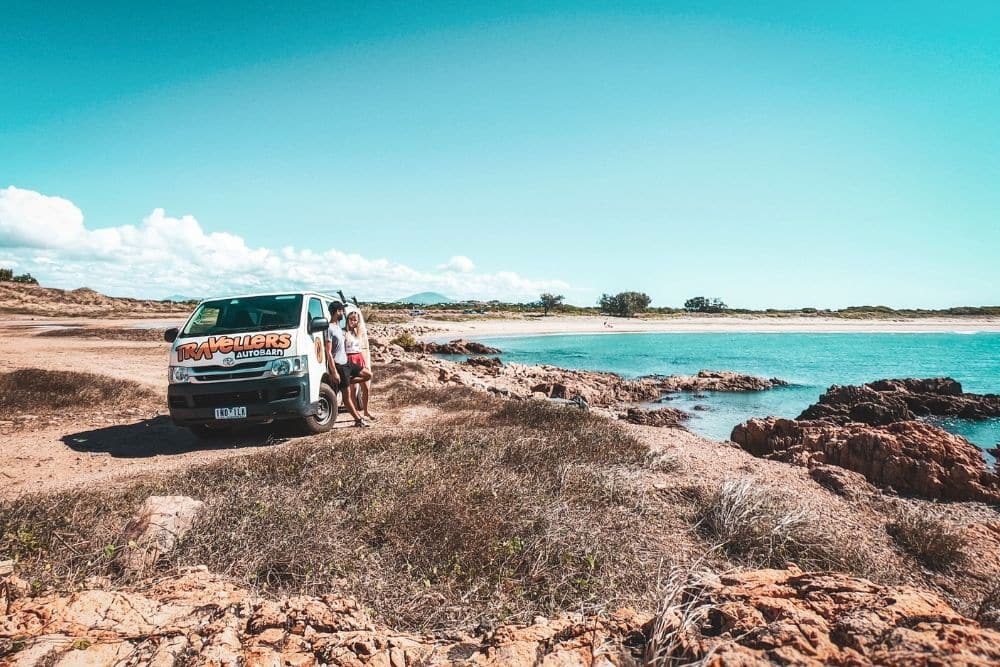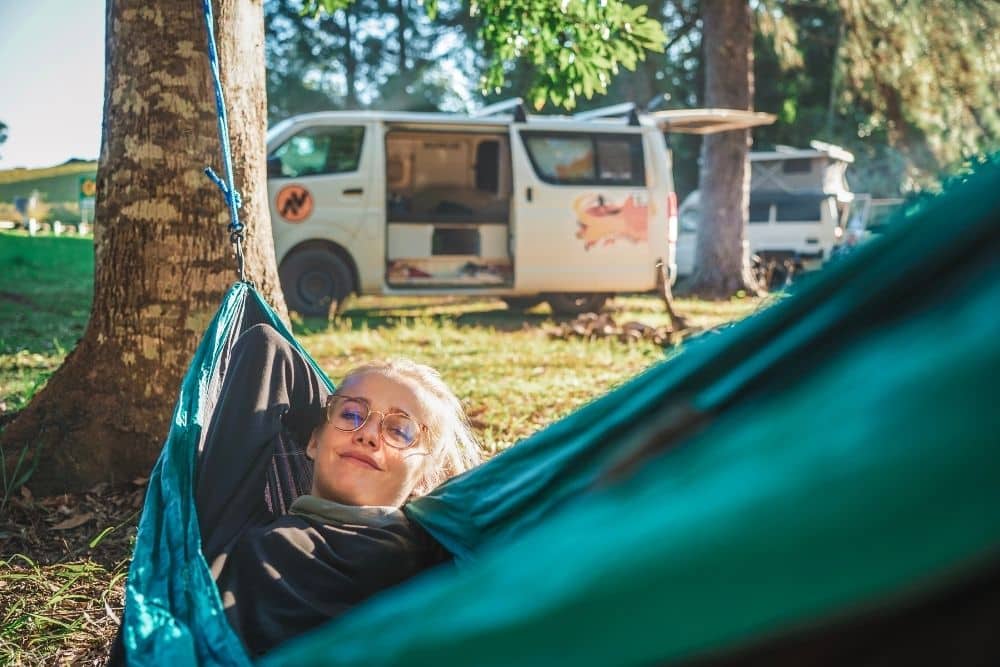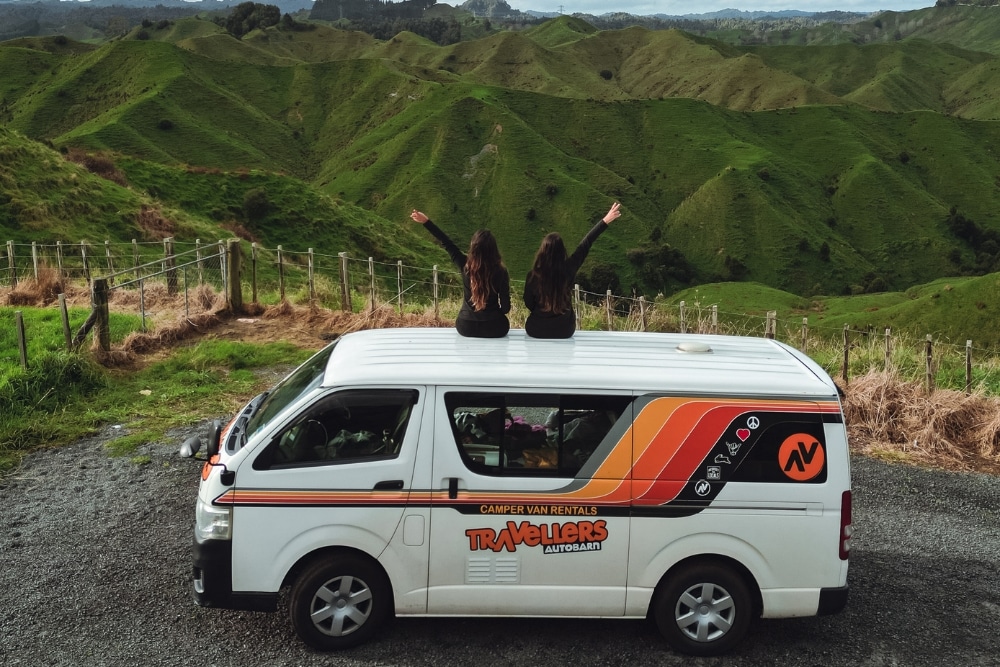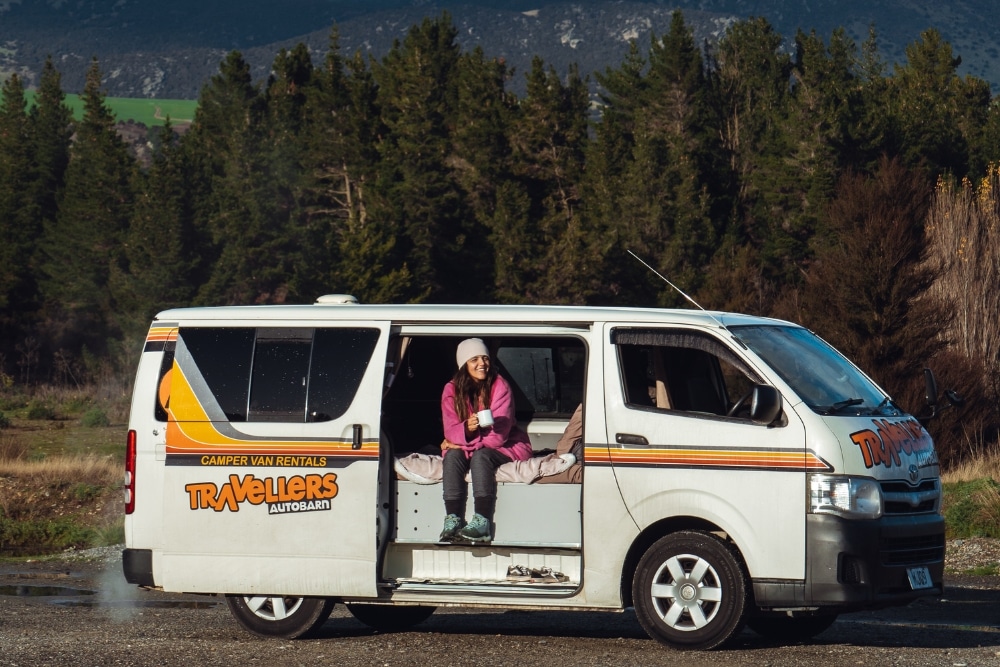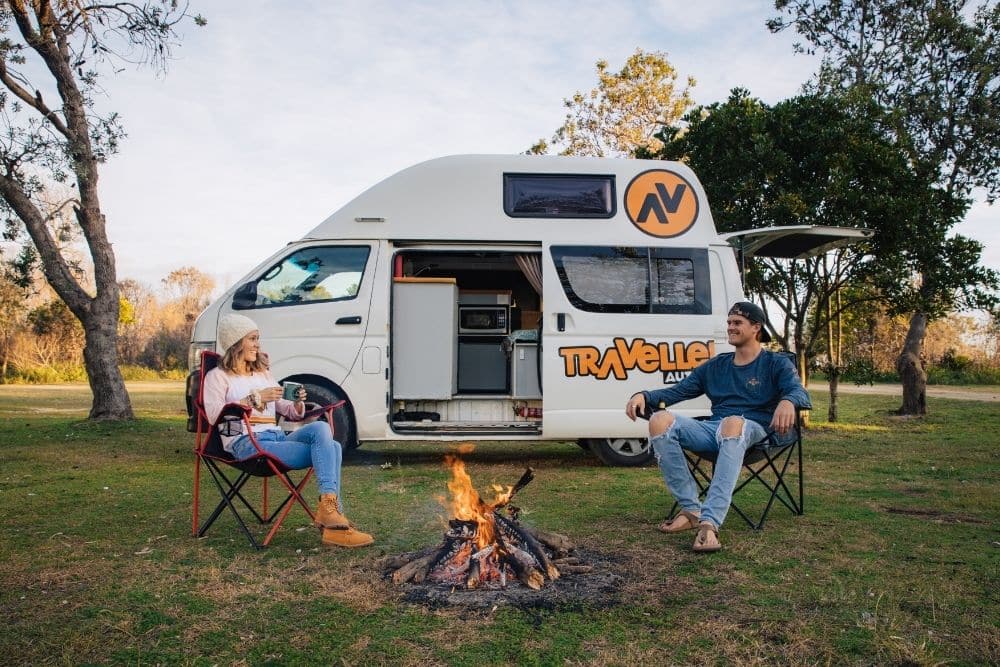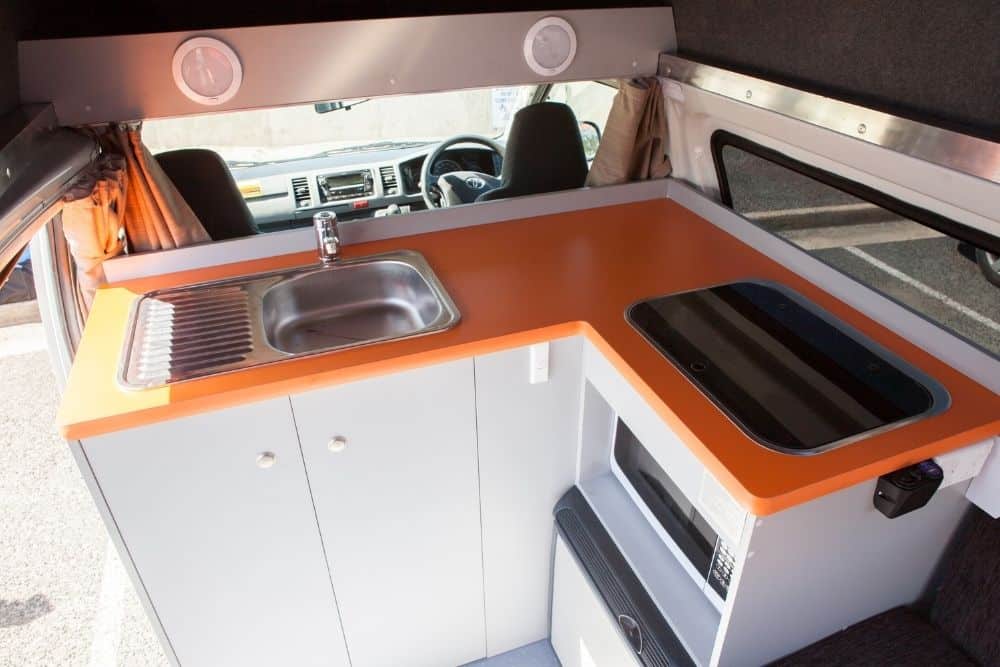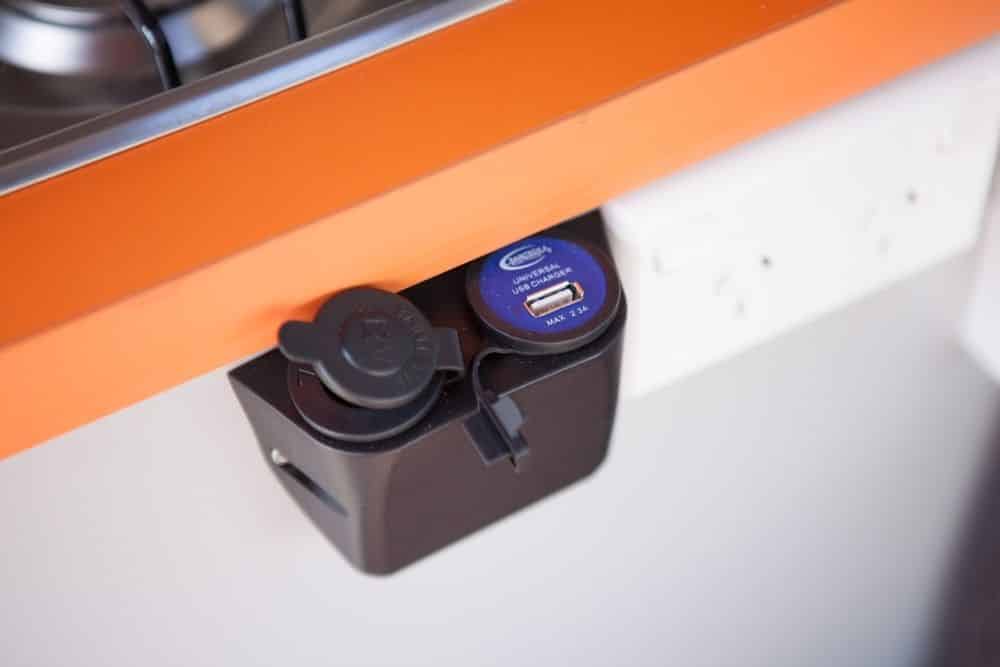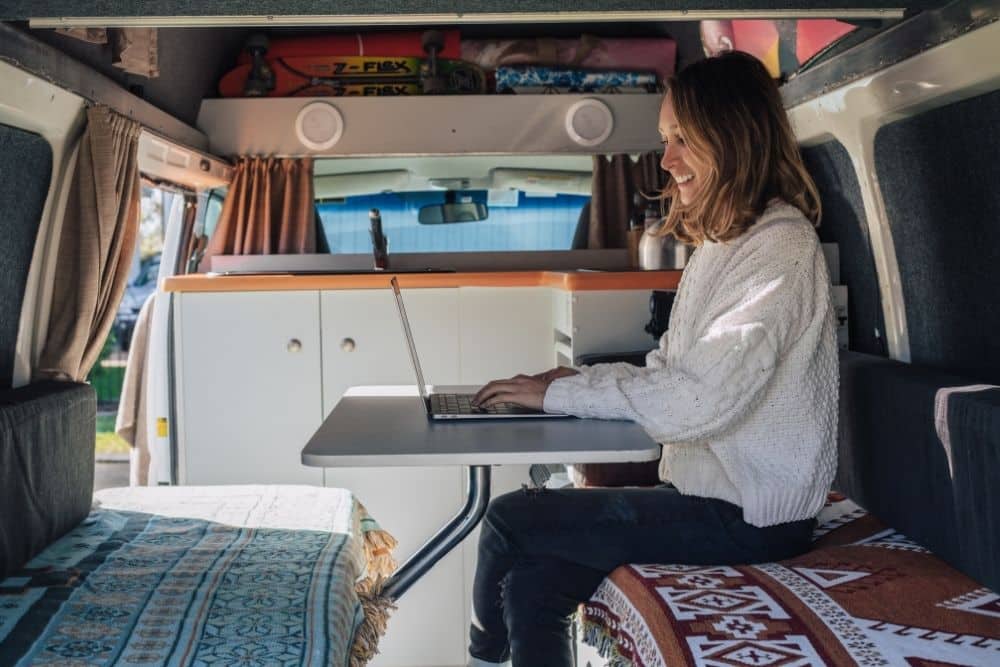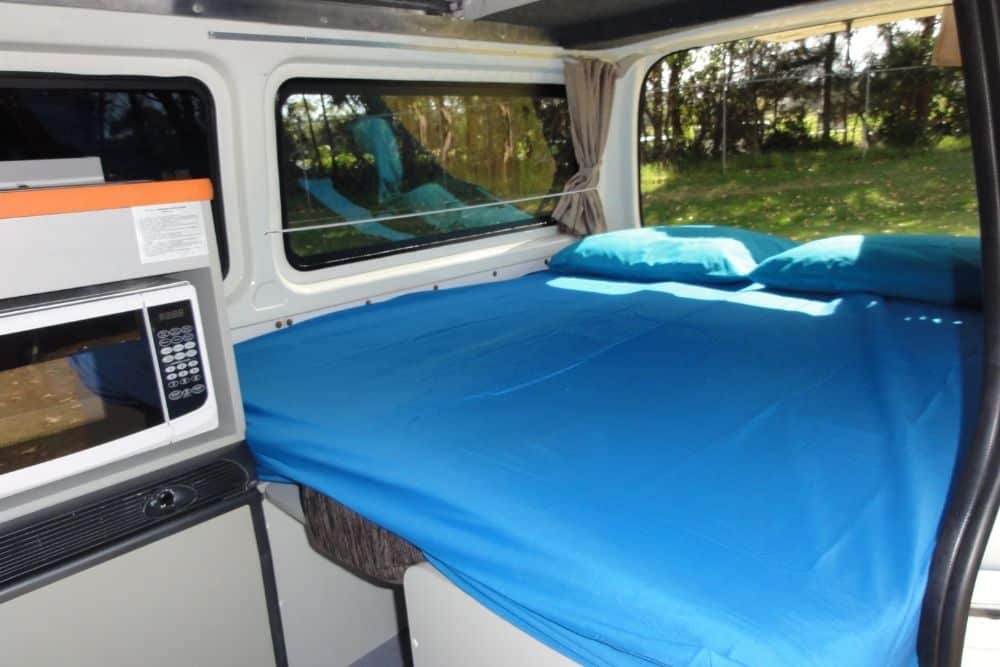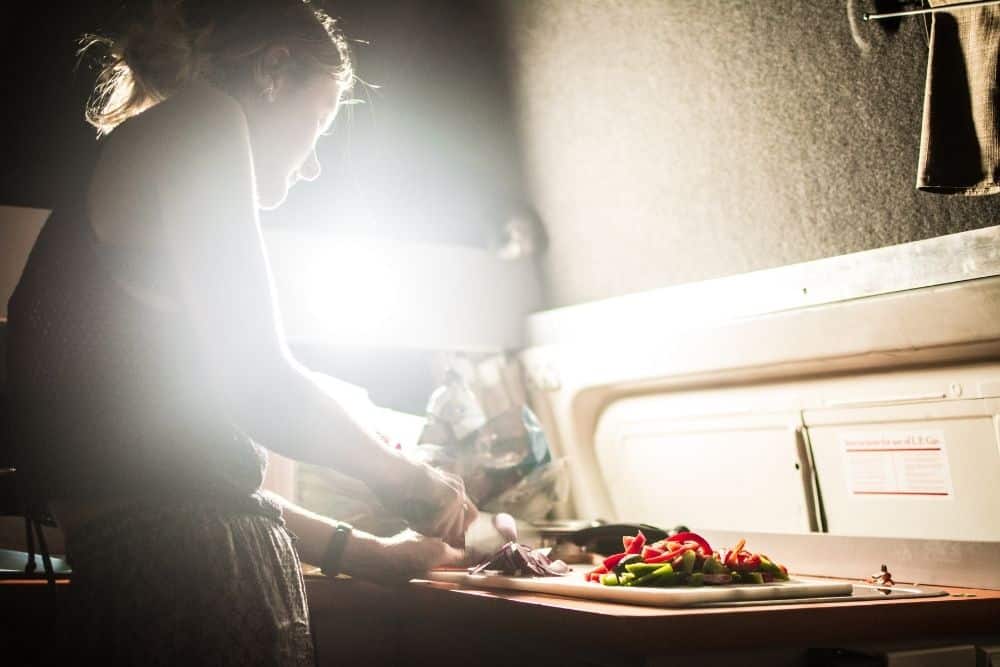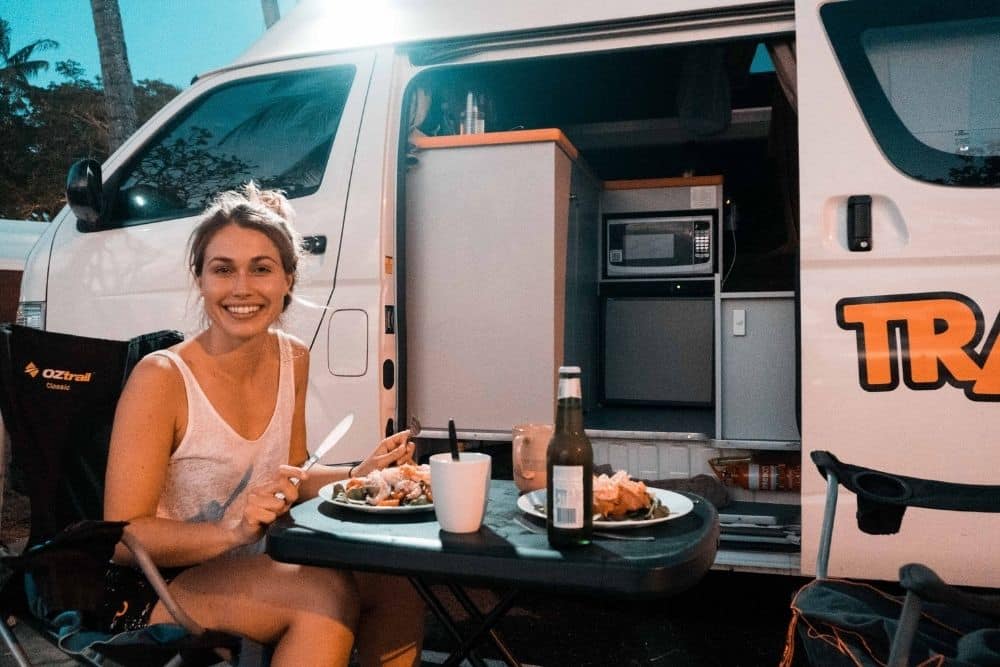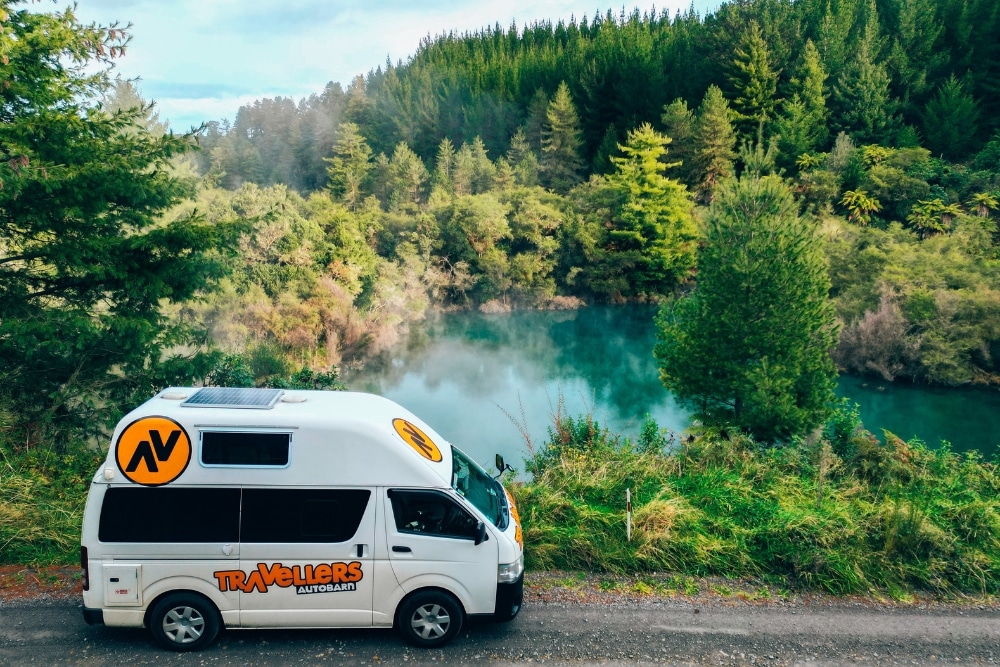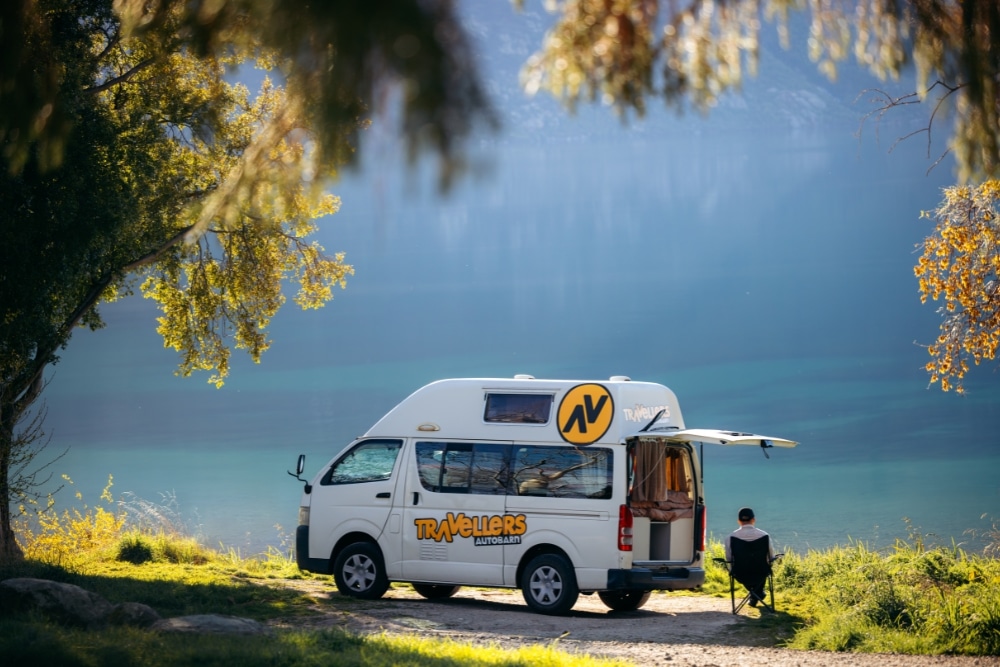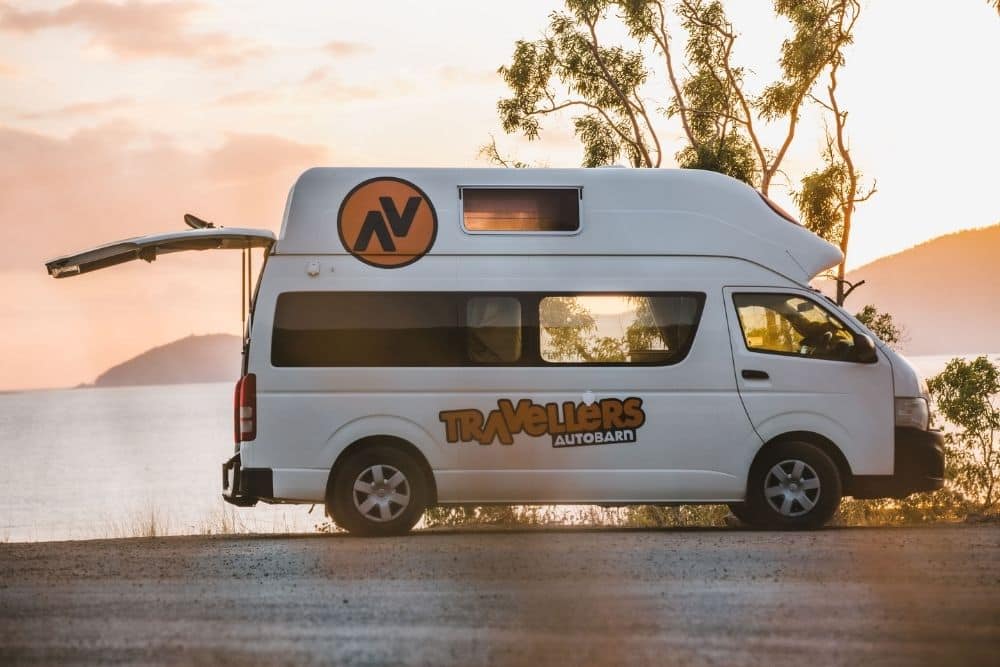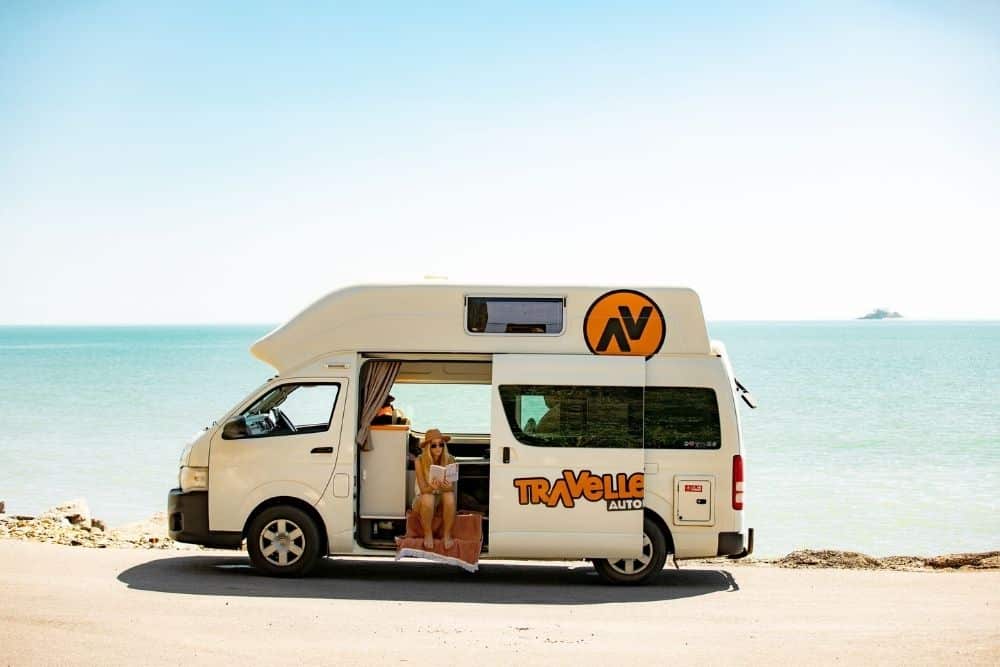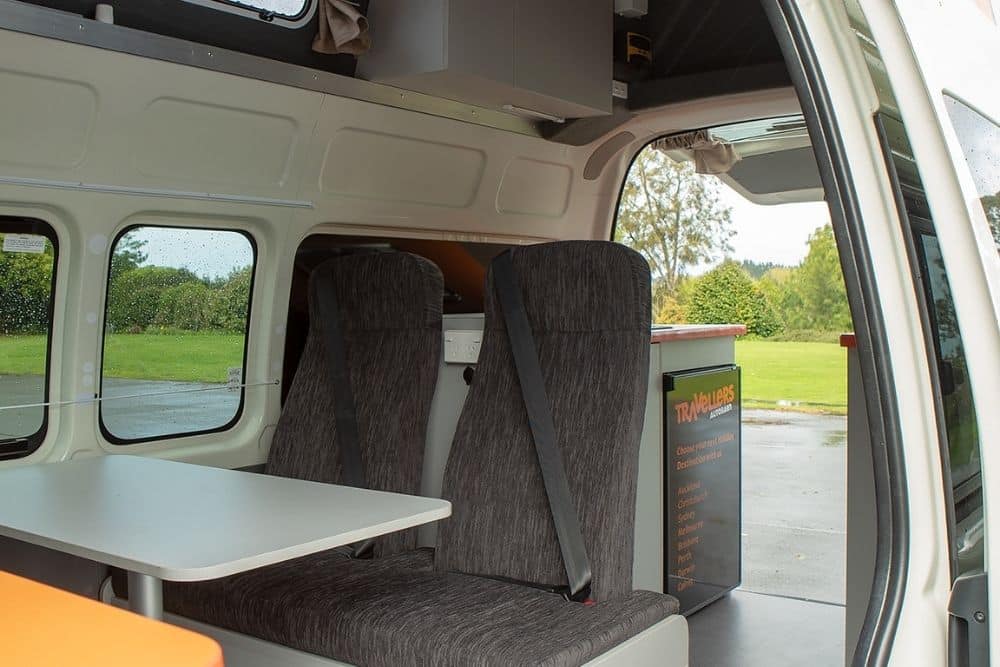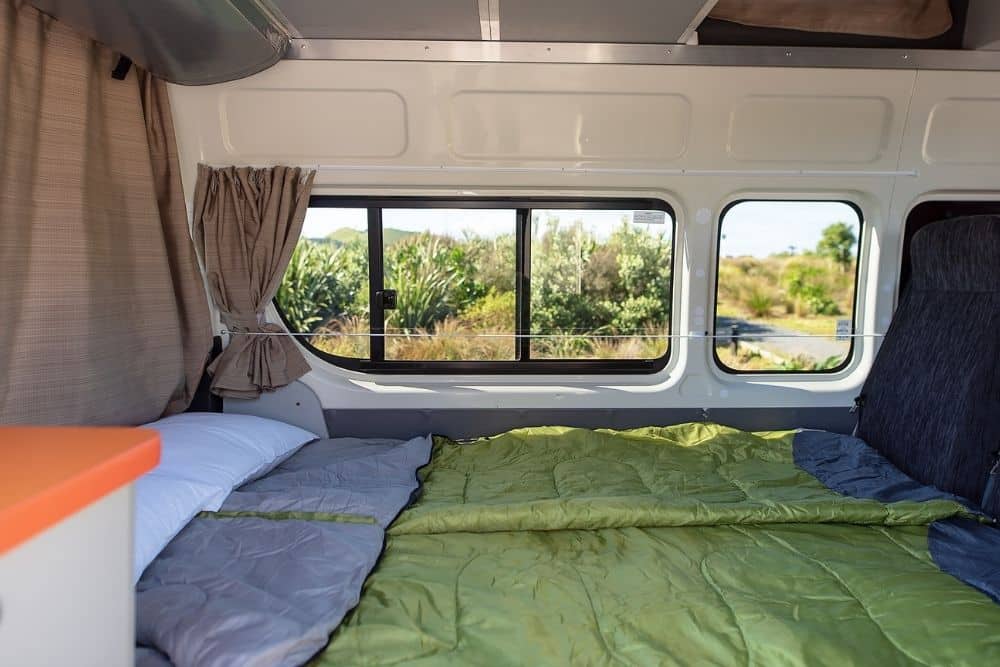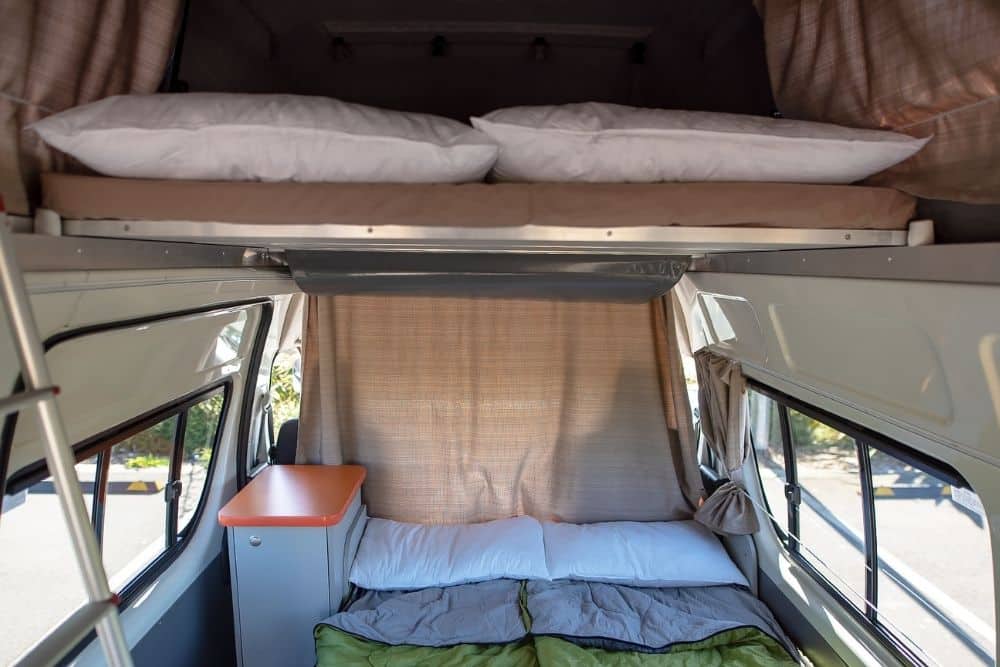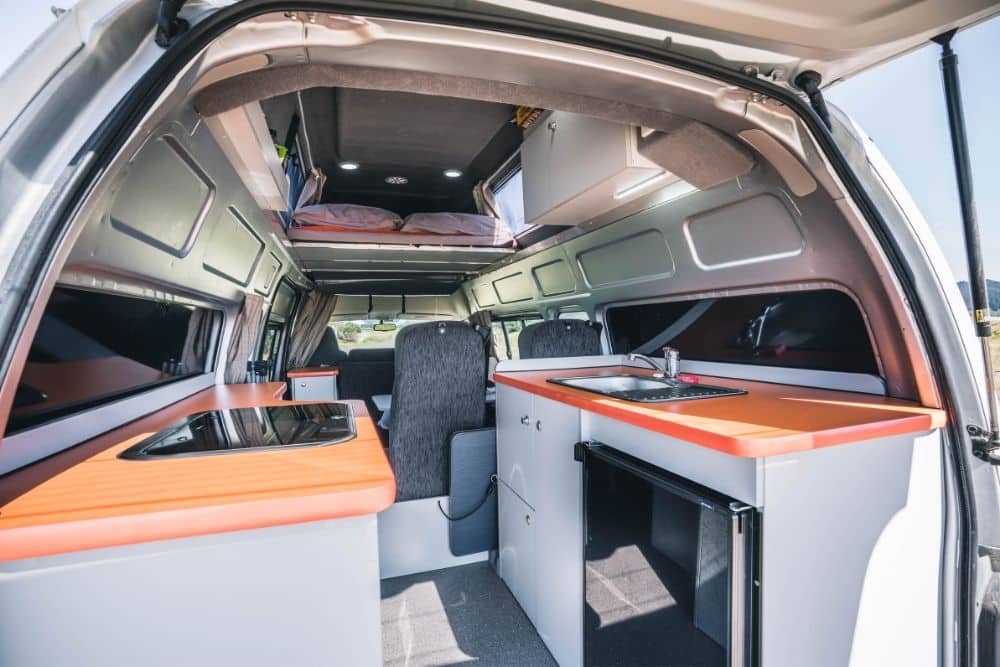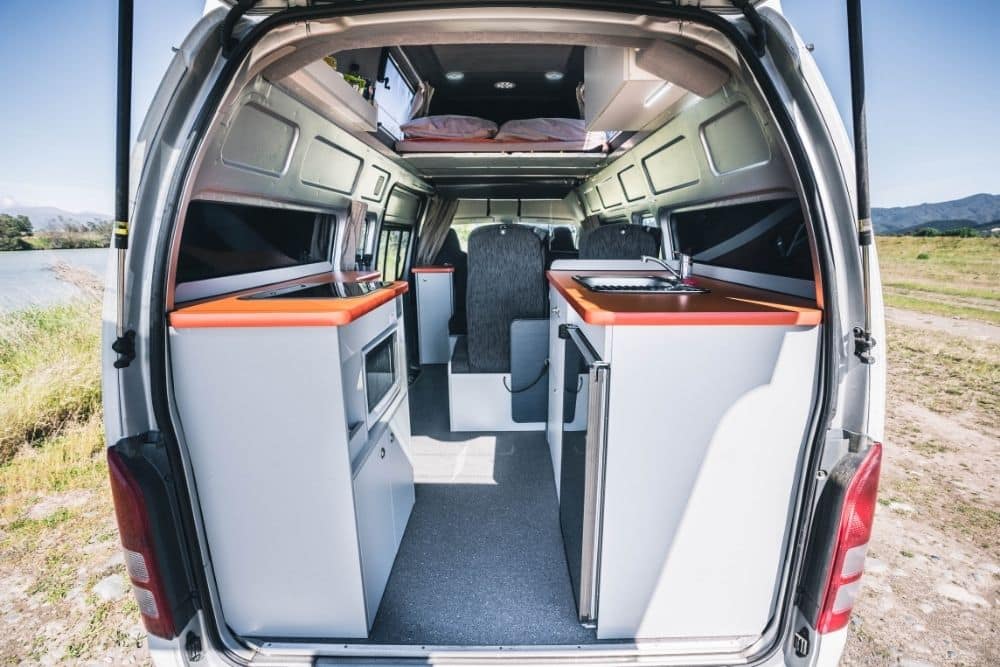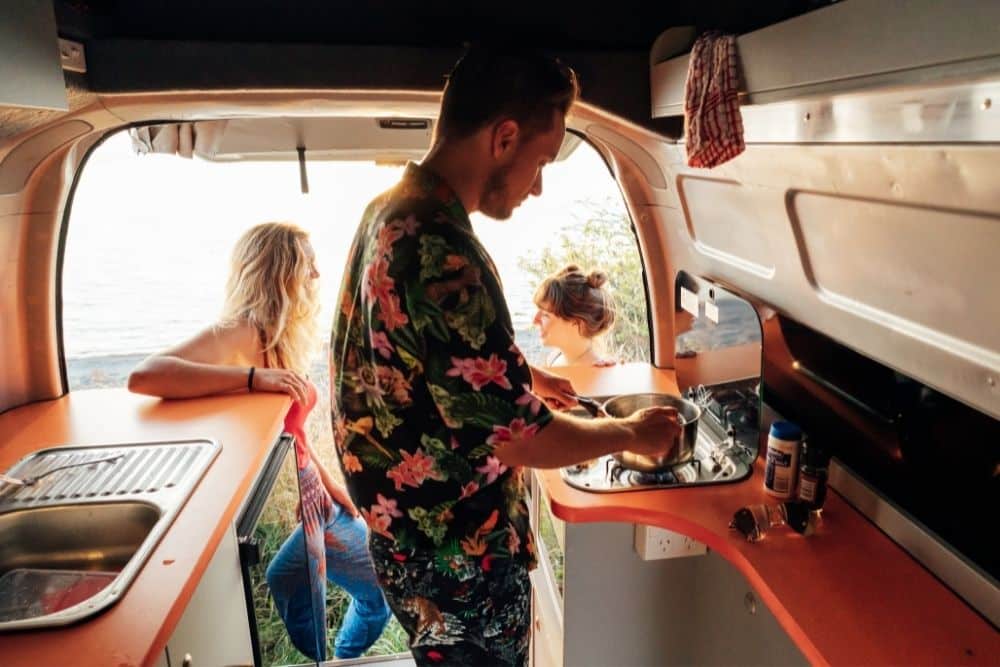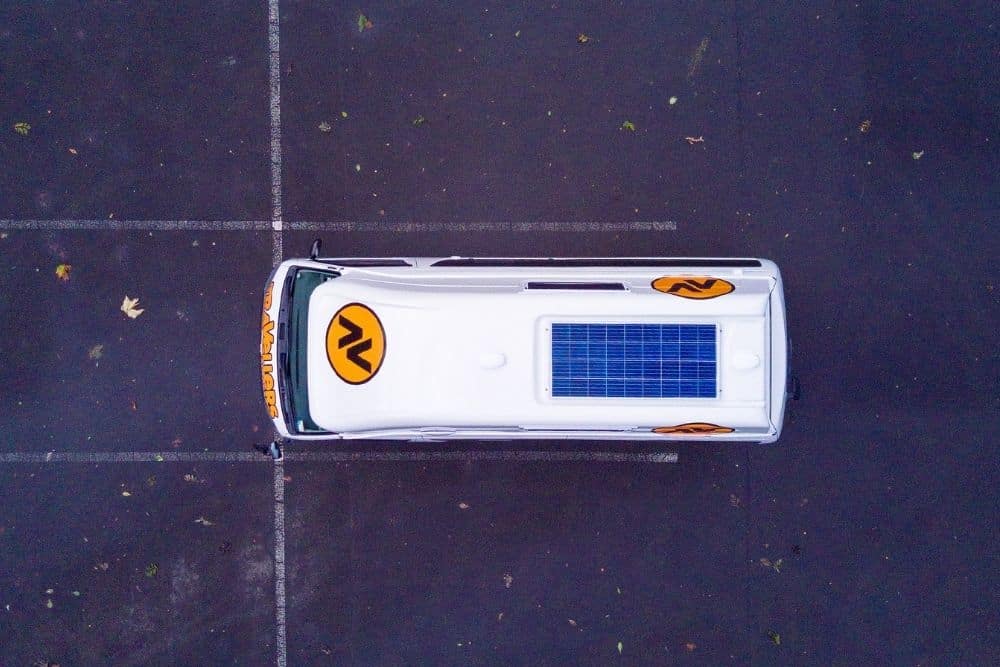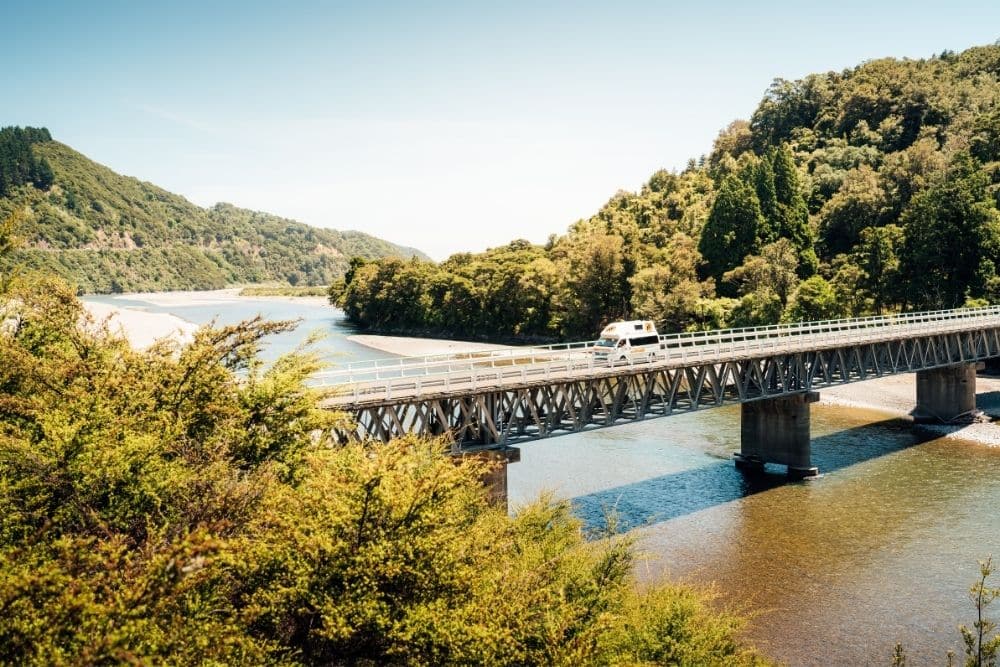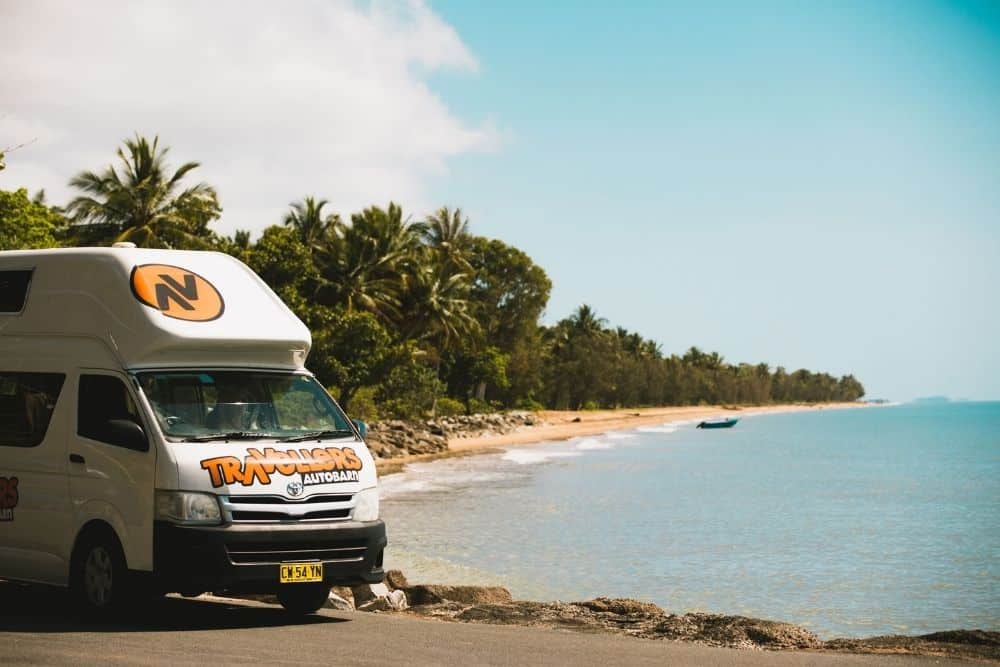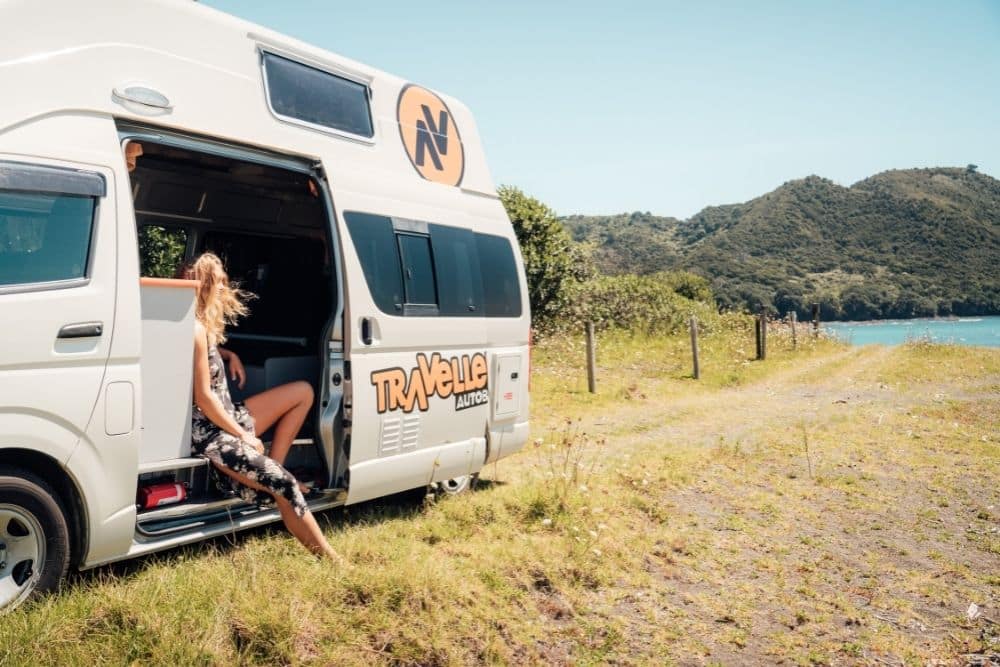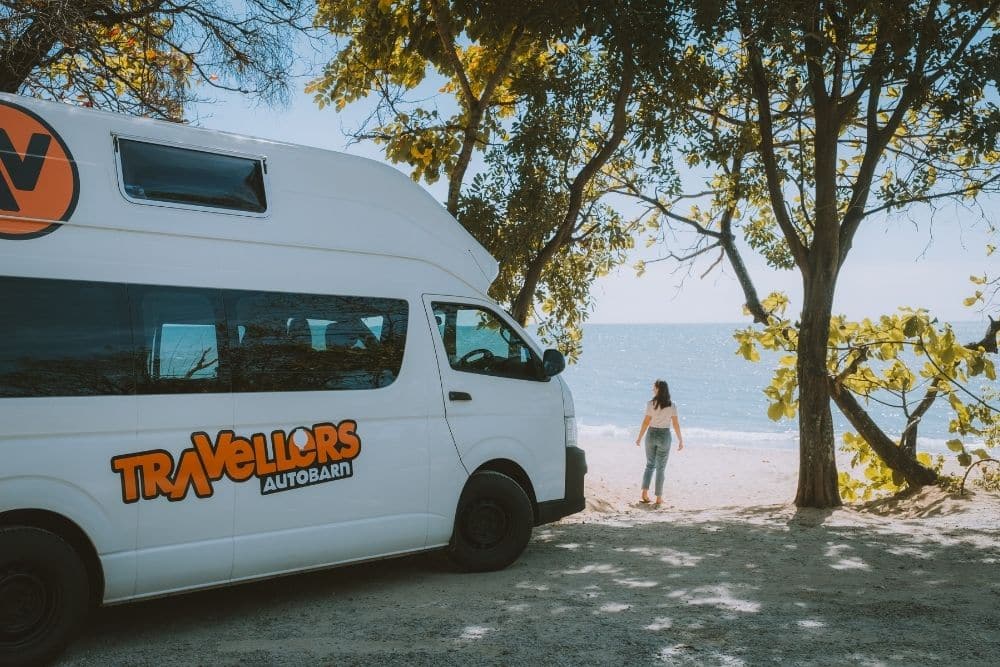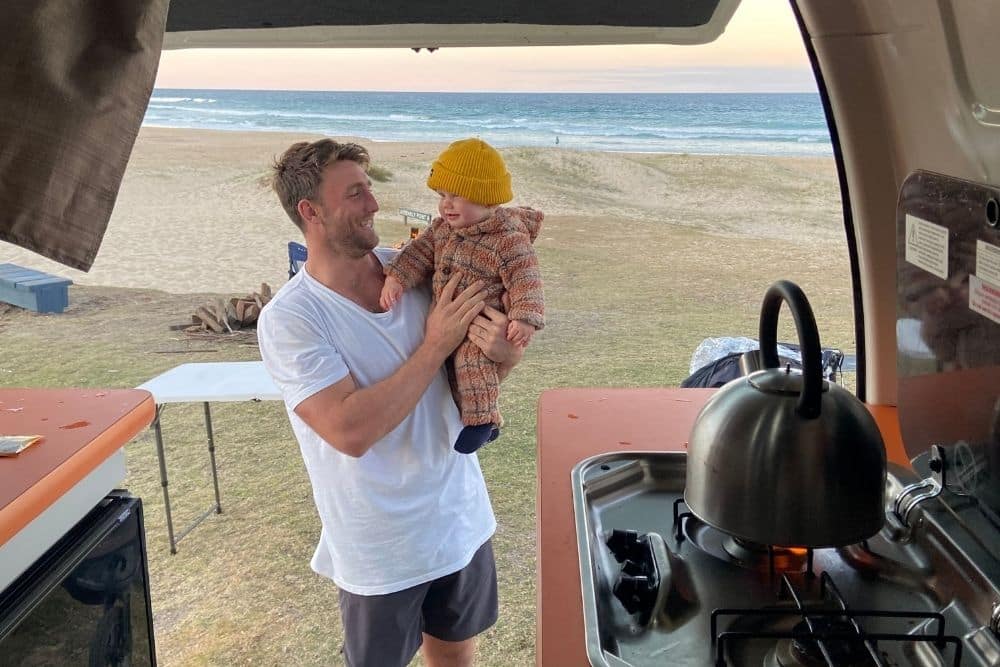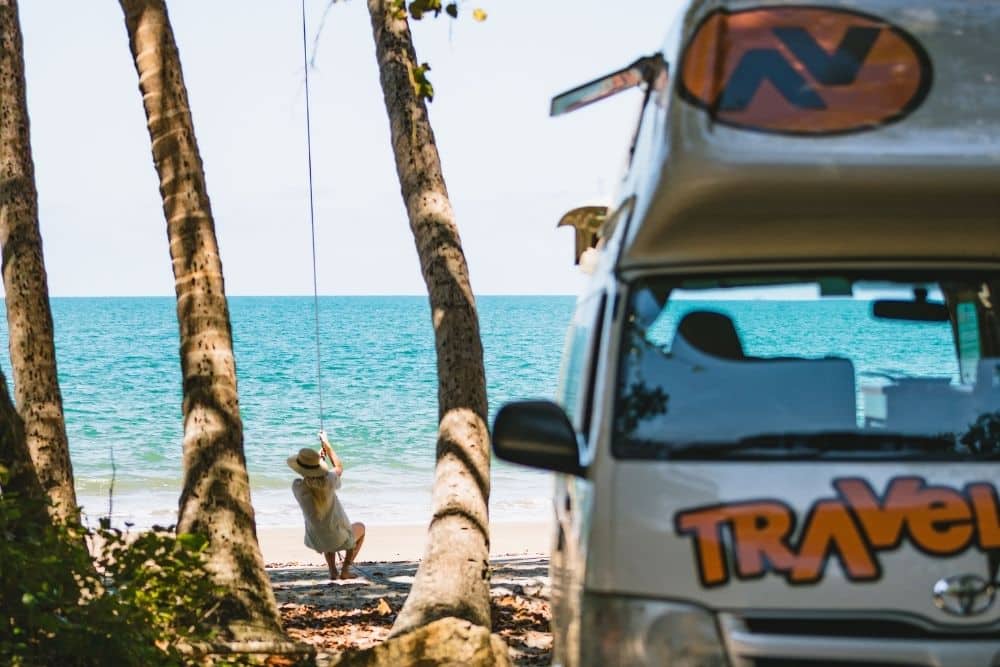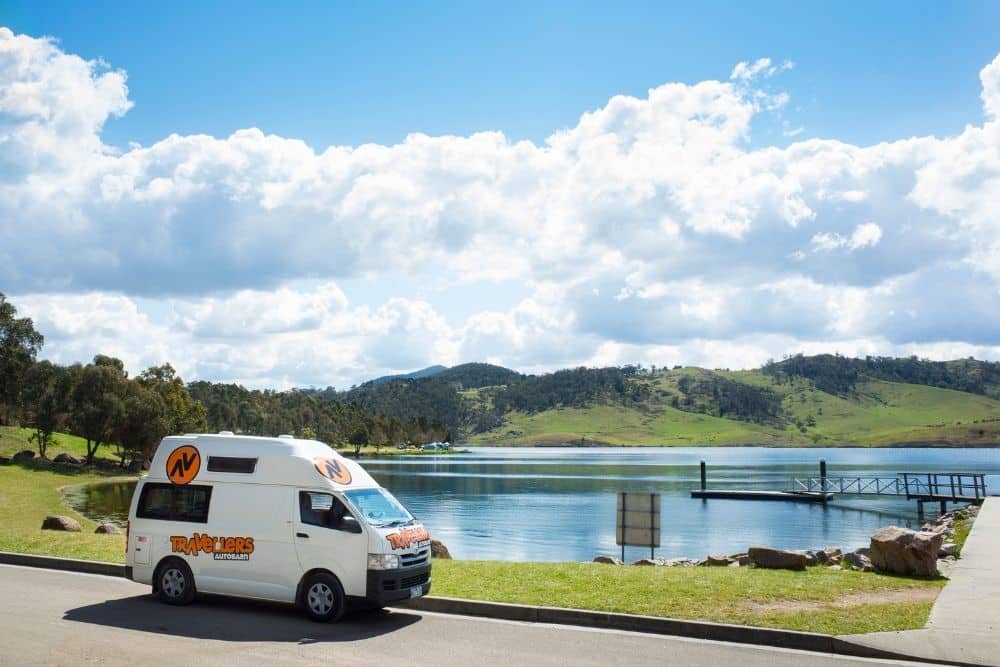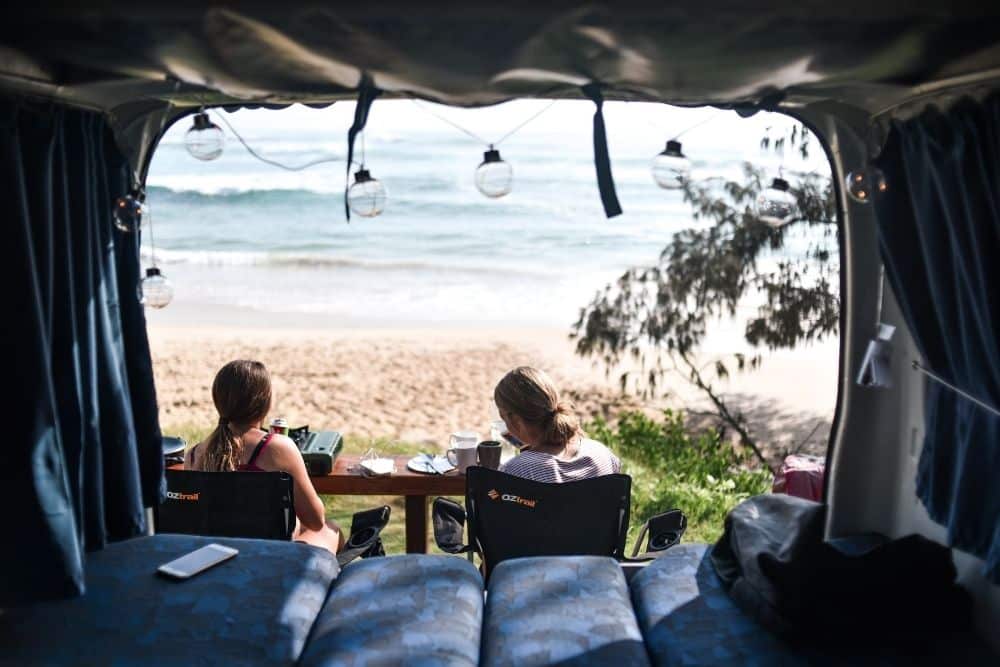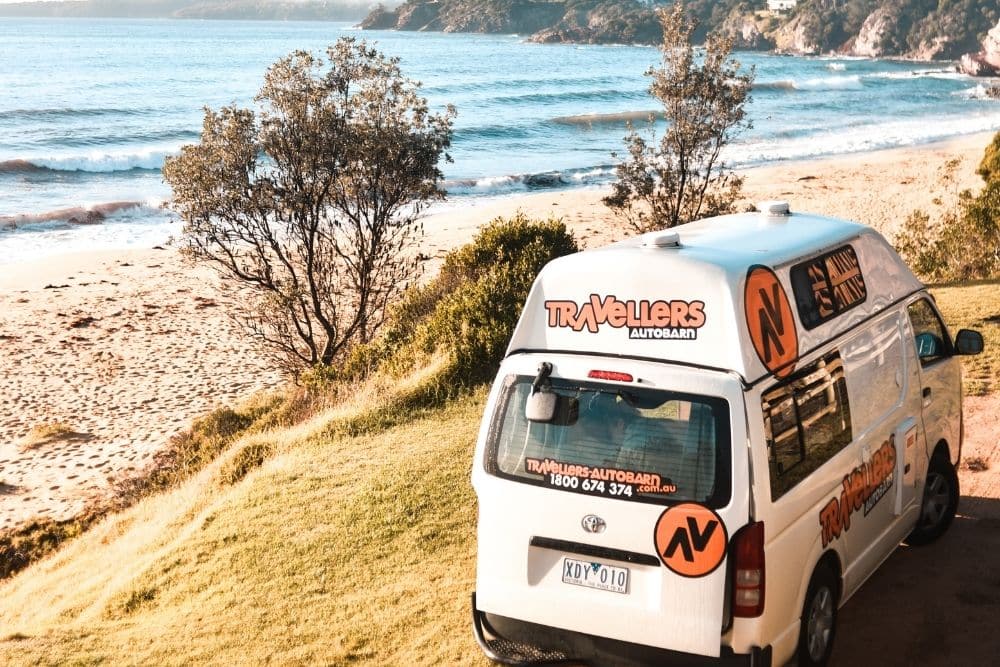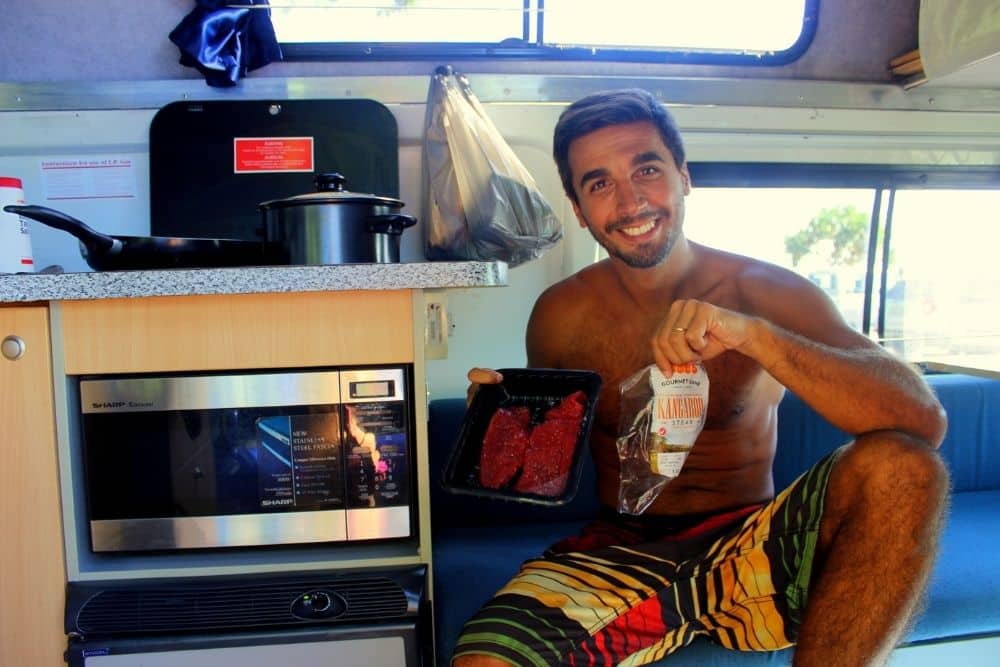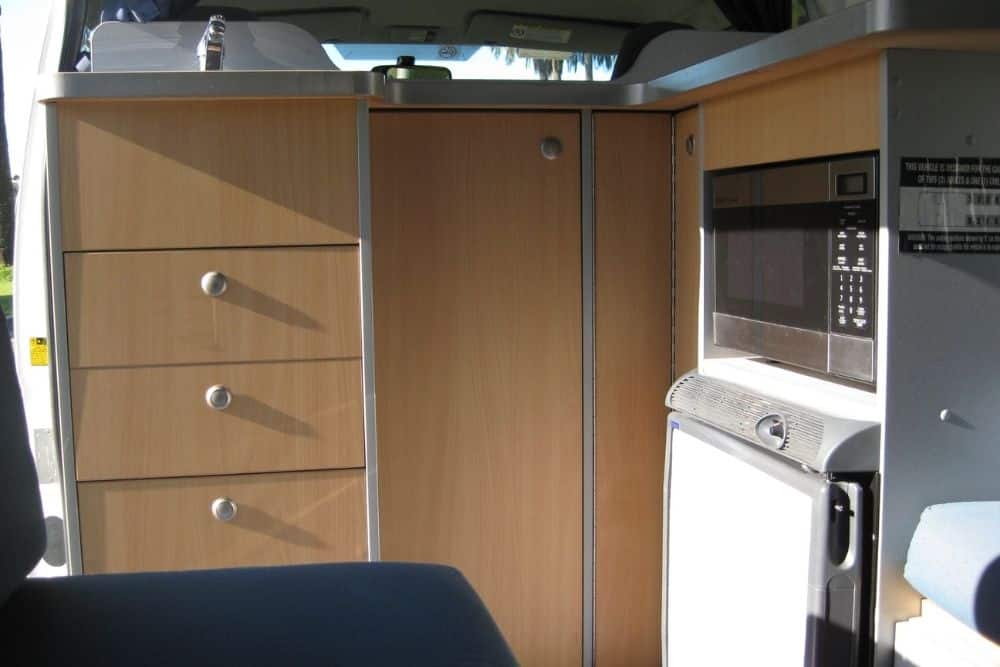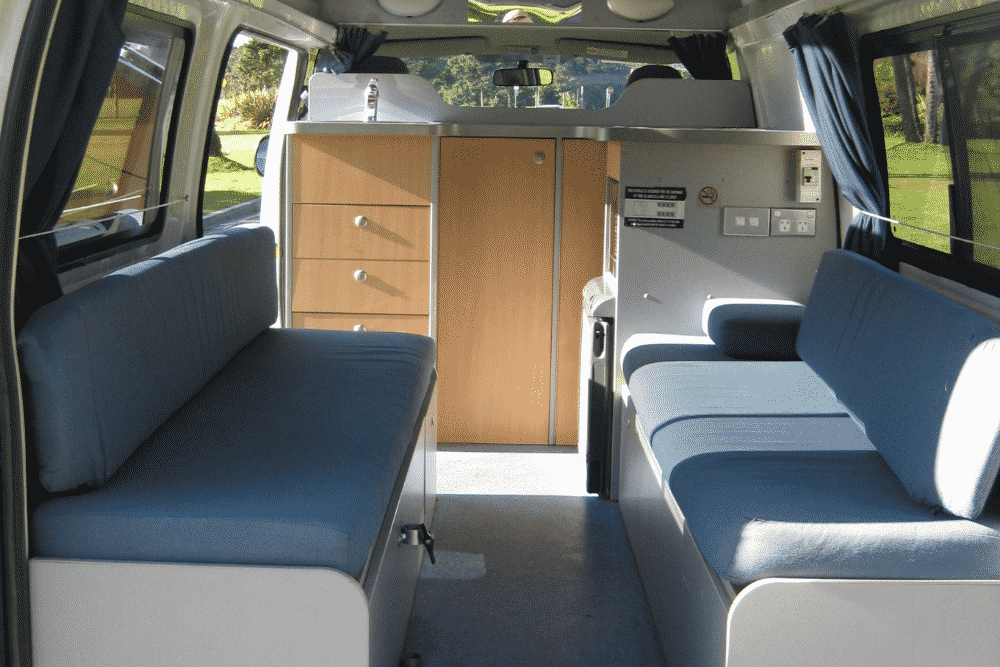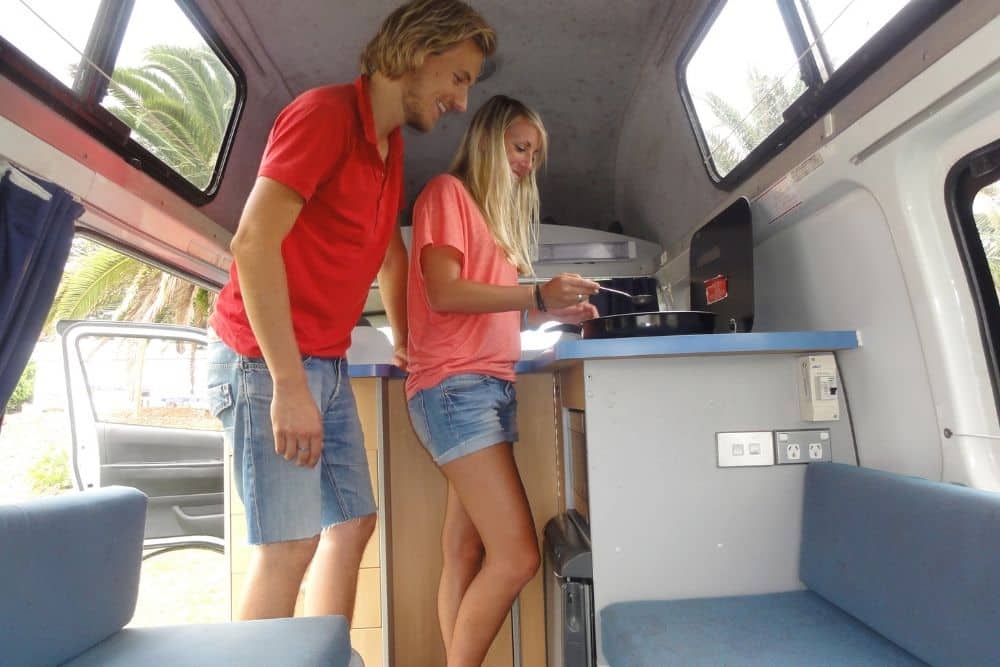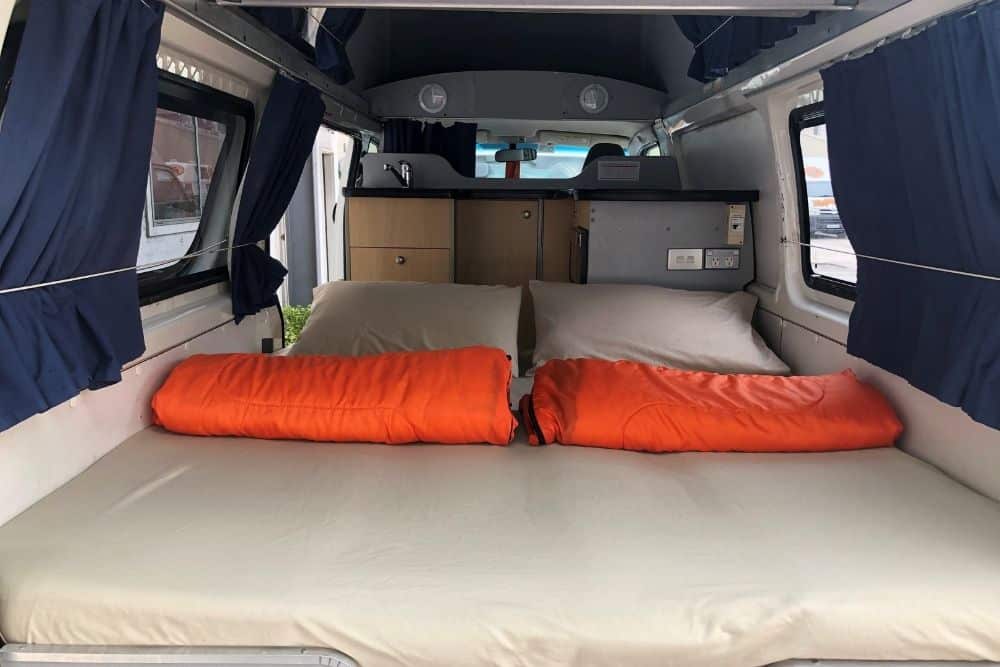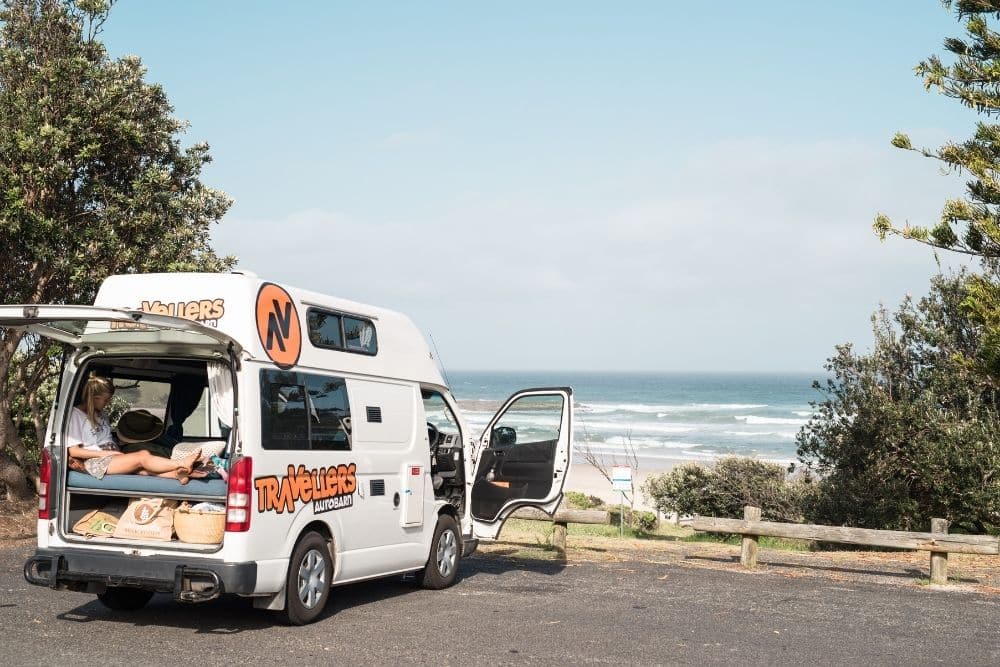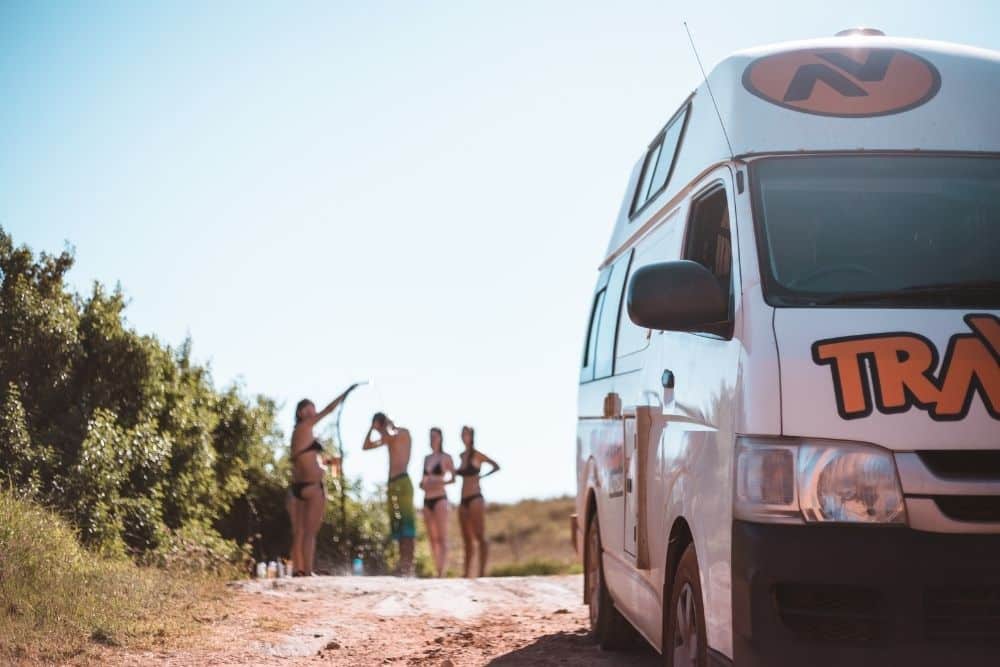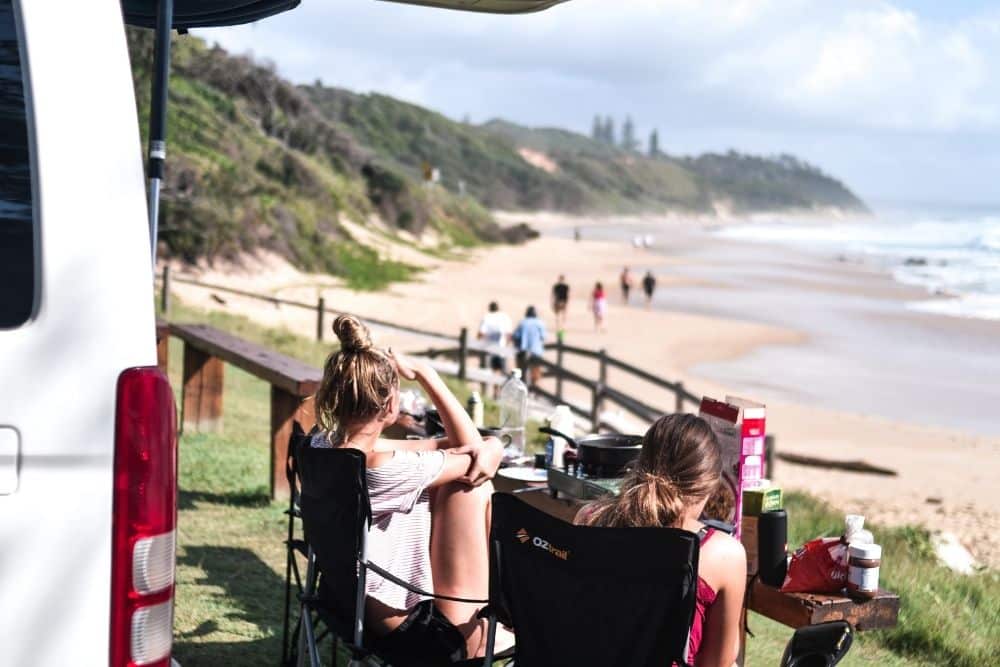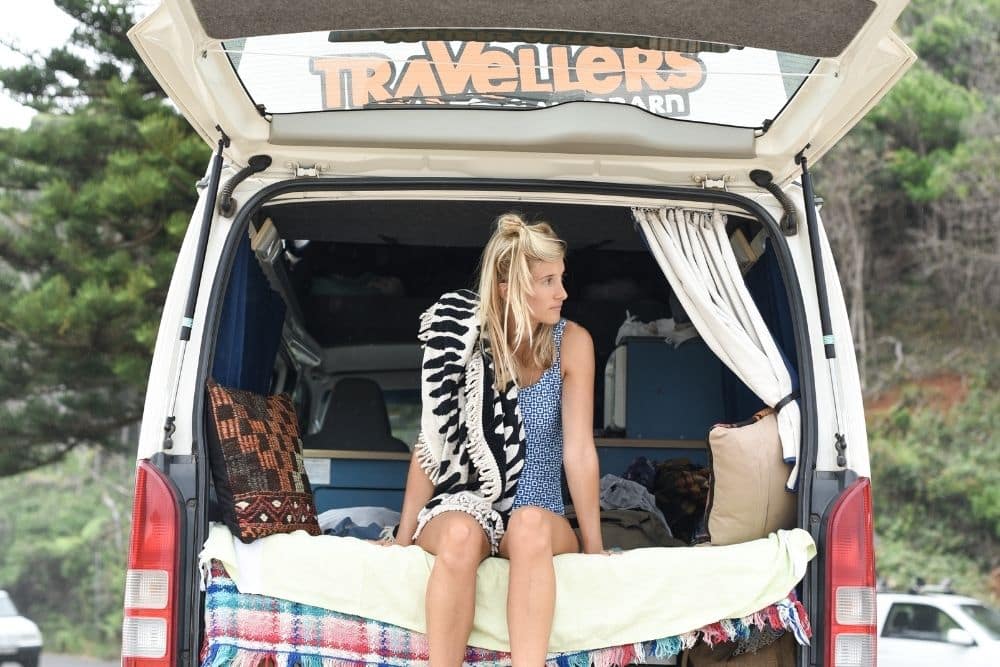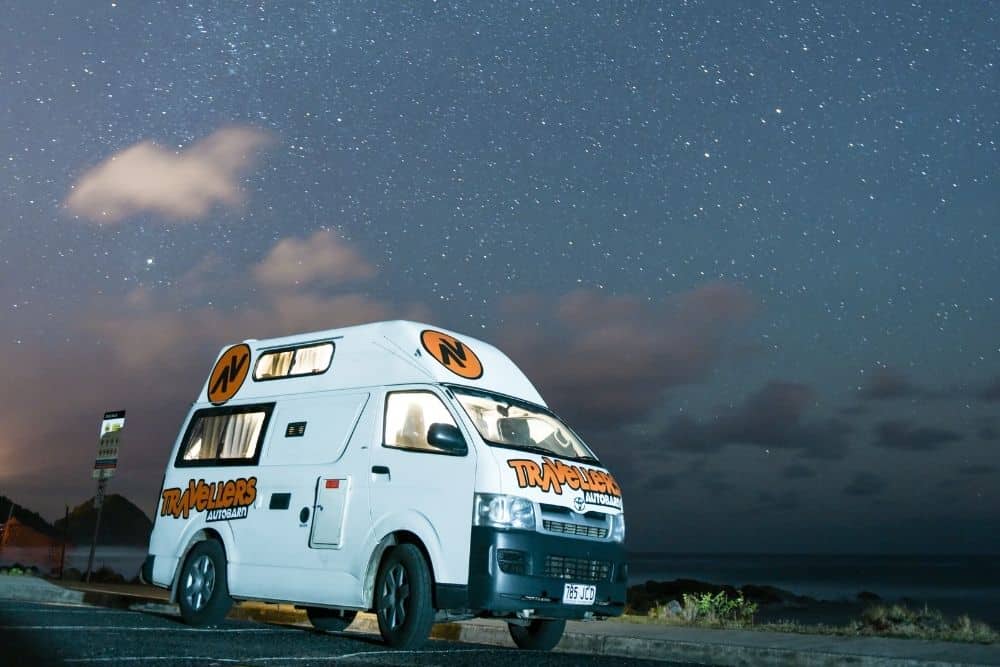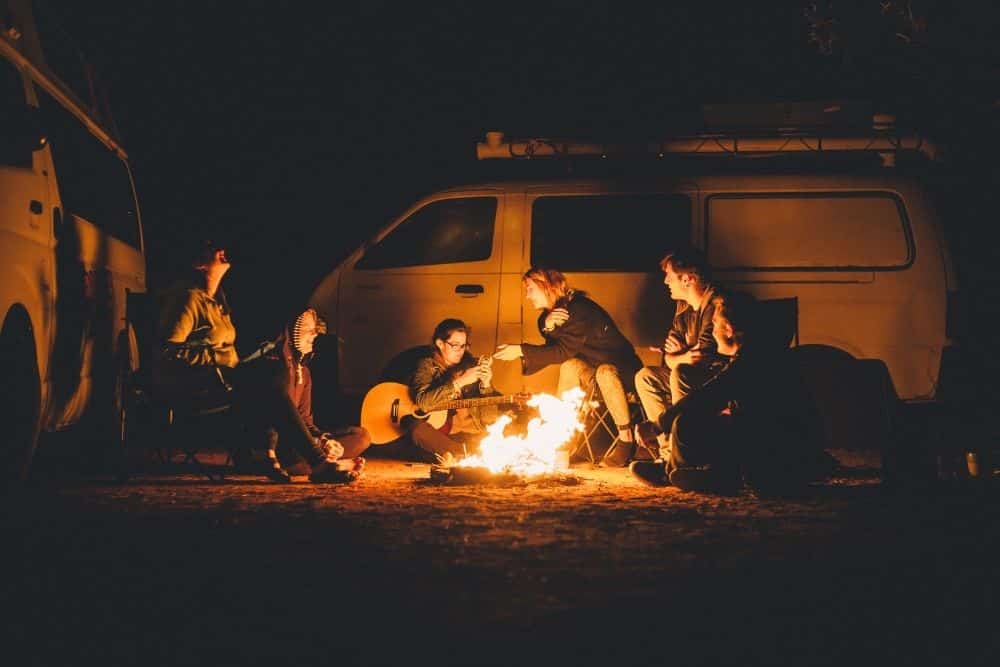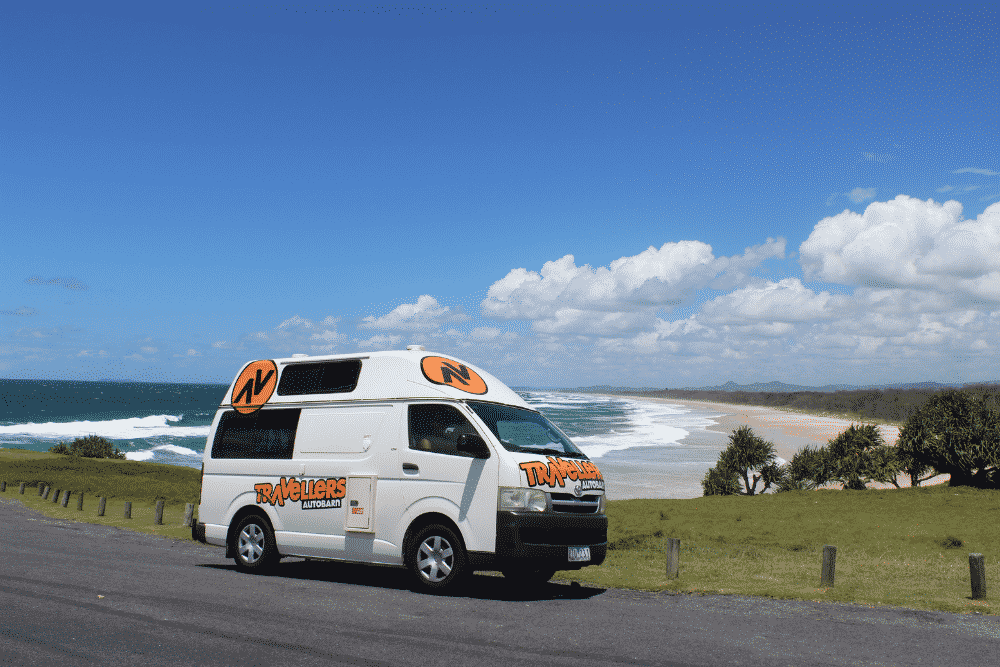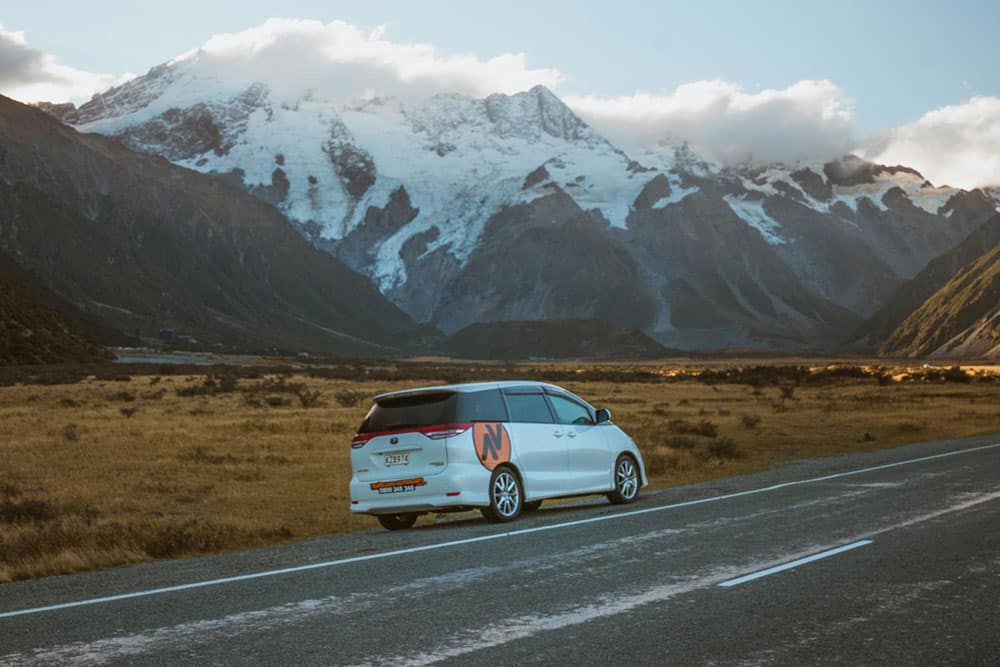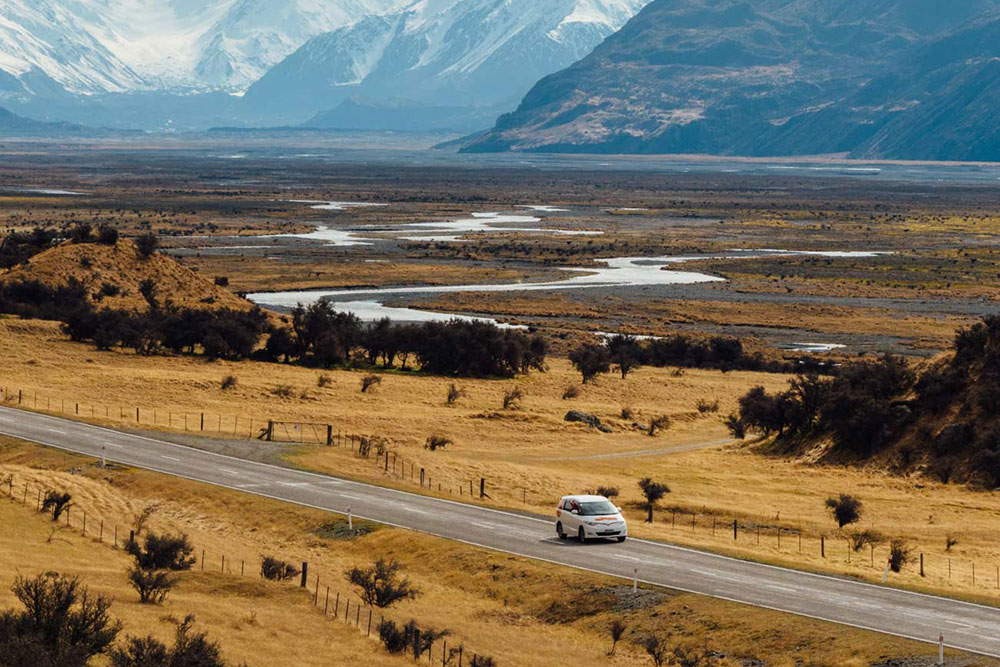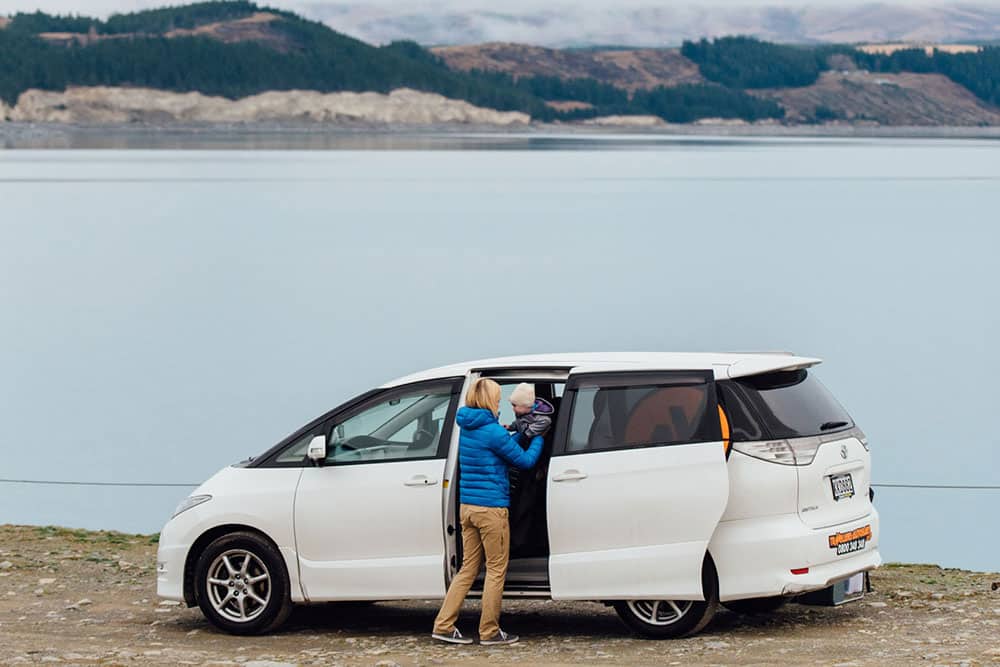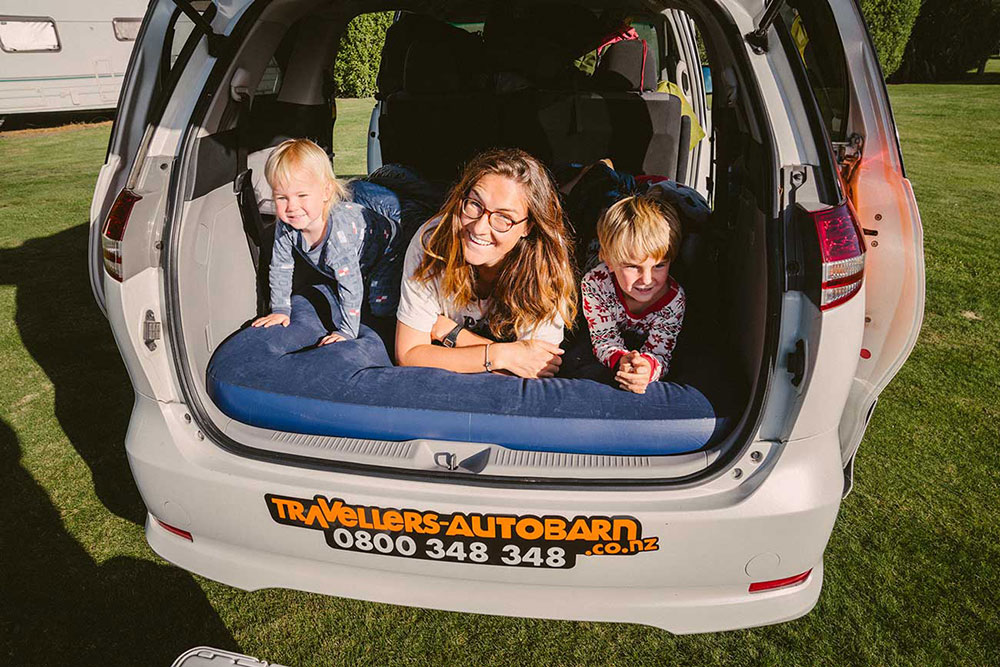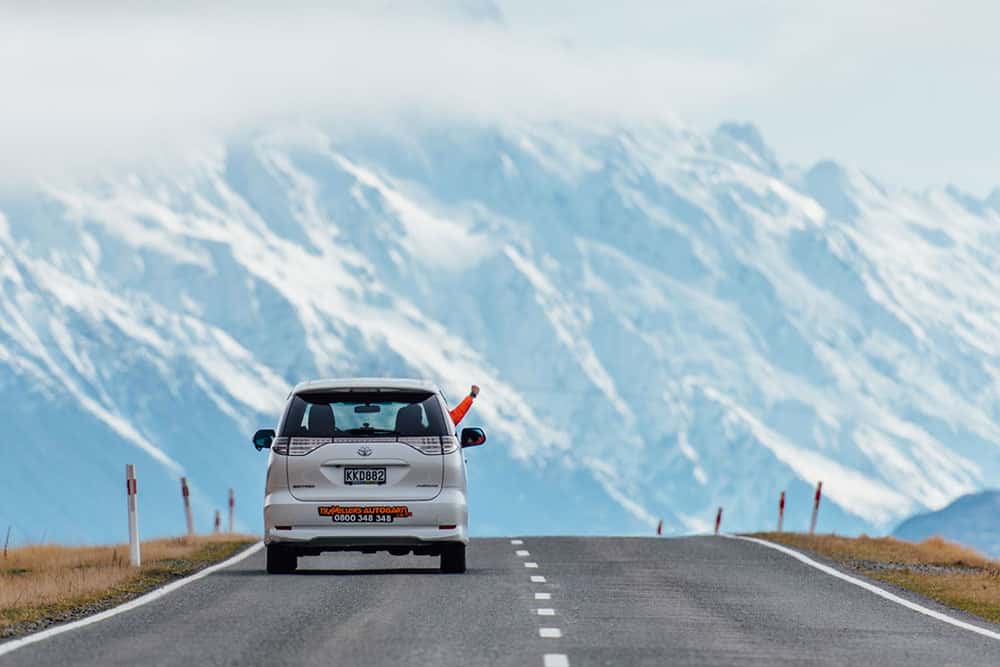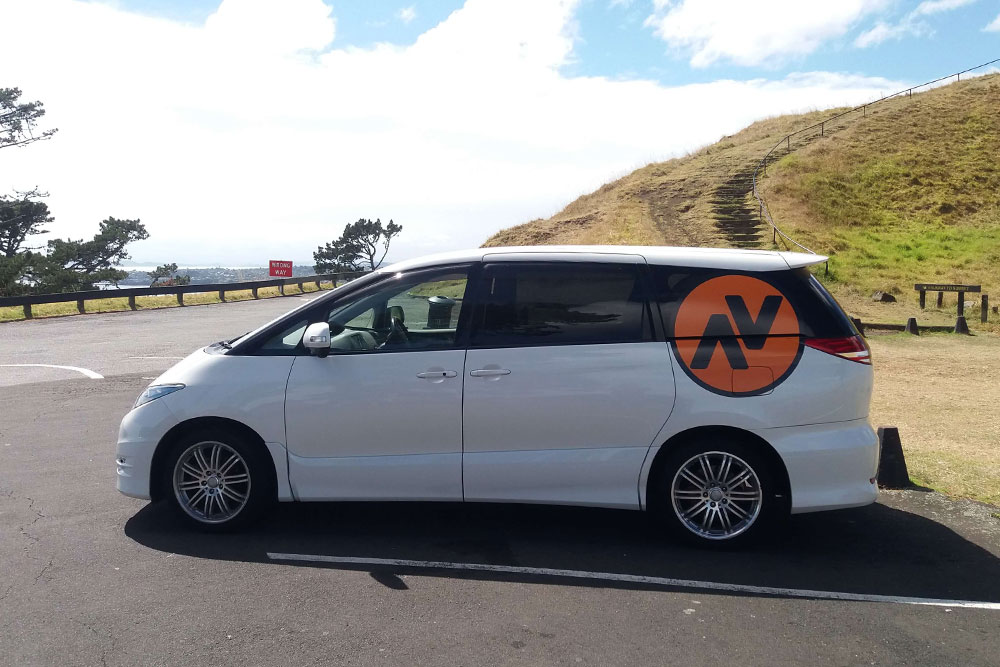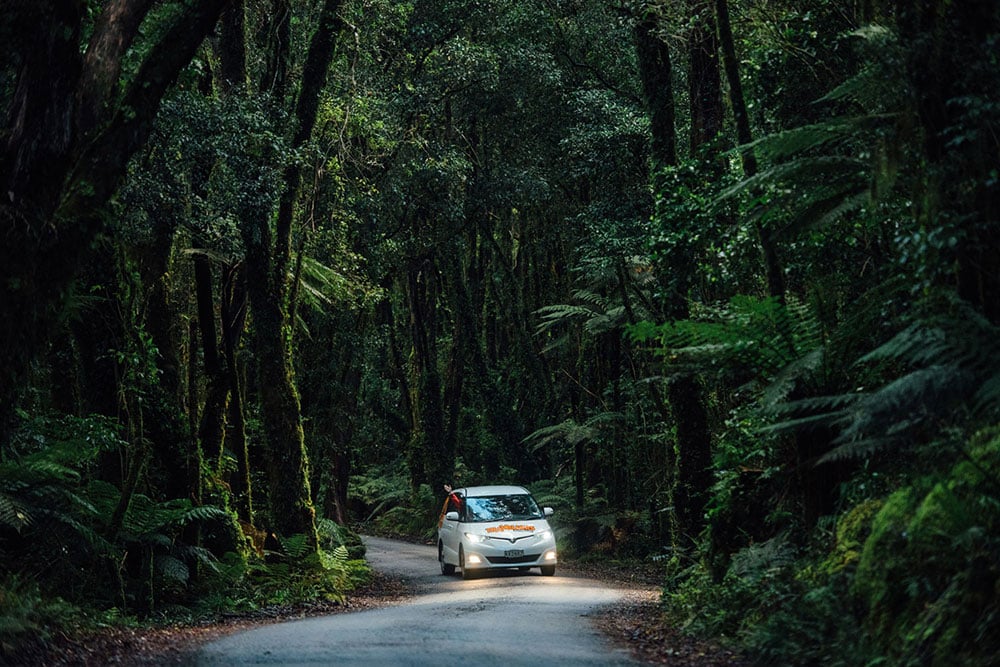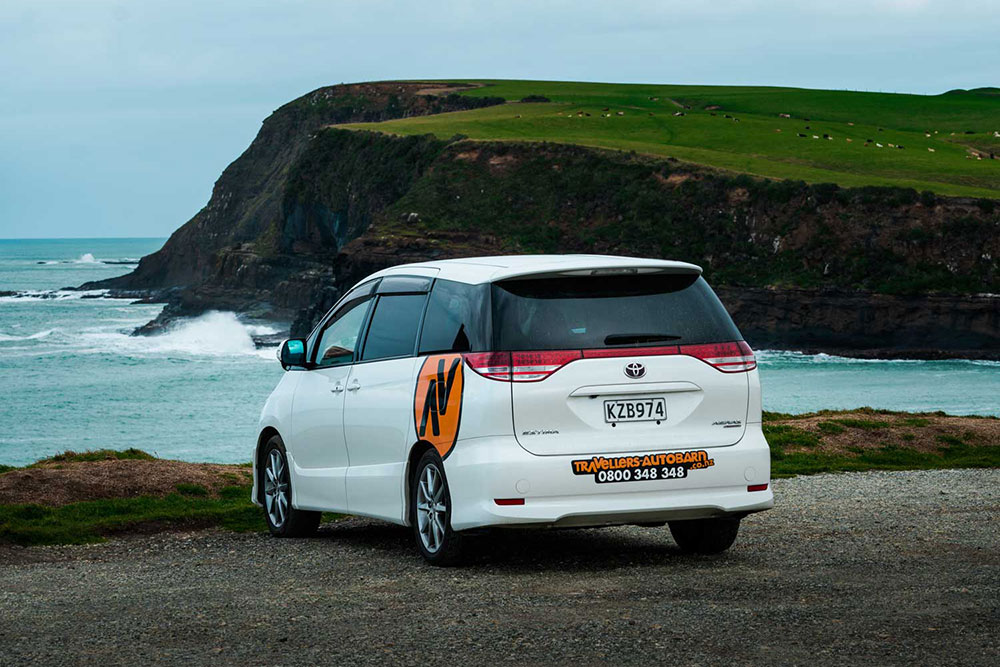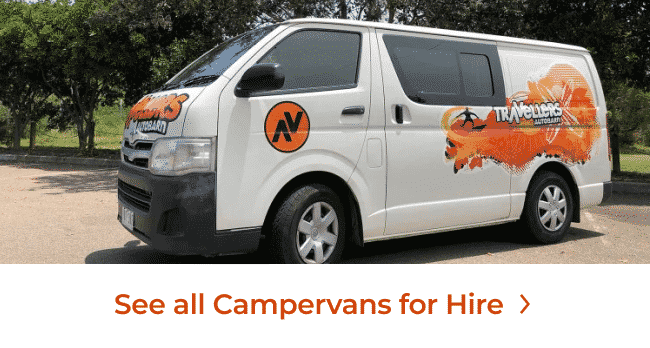If you’re hiring a campervan to travel around New Zealand, the last thing you want is to be stopped in your tracks by something you’ve overlooked by accident. Don’t get us wrong — we love carefree, easy-going adventures in the outdoors. But not preparing yourself or doing enough research before you head off can leave you stuck with a nasty surprise.
To make life a little easier, we’ve popped together this list of 15 things to check out before you rent a campervan in New Zealand. Use this guide to choose the best vehicle, the best passengers, and the best campervan hire company for your needs.
Let’s get started!
1. Check the number of passengers you can fit
When choosing a campervan, keep an eye out for the term ‘berth’. This is how many people can legally travel/sleep in the campervan — so if it says ‘2-berth’, only 2 people can be seated in this vehicle.
In New Zealand, there are very strict road rules around wearing seatbelts. There is absolutely no way you can sit a third passenger in the back of a 2-berth van, including on a make-shift seat or on the floor.
2. What kind of transmission does the campervan have?
Take it from us, the last thing you want is to arrive at the depot to collect you vehicle only to find you don’t know how to drive it. Most campervans have an automatic transmission — but there are exceptions, so watch out.
If you’re used to driving a manual, it’s easy as cake to switch to an automatic. However, if you’re used to driving an automatic and you book a manual by mistake, well… you’re gonna have a bad time.
3. Check if your license is valid in New Zealand
If you’re an overseas traveller from a non-English speaking country, you’ll need to show an international driving license plus your primary driver’s license when you pick up your campervan. If you need a last-minute international driver’s license, there are plenty of official translation services in New Zealand that can help you out. Believe us though, it’ll be way less stressful if you get it sorted out beforehand.
4. Keep an eye out for age restrictions
Most campervan rental companies in New Zealand require hirers to be over 21 years old. Even those who allow young drivers sometimes slap them with a hefty ‘young drivers fee’. At Travellers Autobarn, we’ll happily rent a vehicle to anyone over the age of 18 with no young driver fees or exclusions on which vehicles you can or cannot rent.
5. Make sure there’s enough room for the kids
If you’re travelling with young children, you’ll need to be careful to only rent a vehicle which can legally seat them. Many campervans only have seats in the driver’s cabin, and children under a certain age aren’t allowed to travel in them. Keep in mind, the laws in New Zealand are extremely strict and may be very different to the laws in your home country.
If any child travelling with you is 4 year or older, you’ll probably be fine. However, if your child is under 4 years old (and especially if they’re under 6 months old), your choices will be very limited! At Travellers Autobarn, our Hi5 Campervan has 3 front seats and 2 back seats — so you can fit a baby seat for children as young as 6 months old.
6. Check the van’s model year
One question you’ll have to ask yourself is how much the age of the van matters to you. Are you looking for a brand-new campervan, or are you okay with a van that has few extra kilometres if it means saving a lot of money?
If you’re undecided, we recommend you think about hiring a used campervan with a new interior fitting — it’ll save you tonnes of money with very little compromise where it matters. Our Chubby, Kuga & Hi5 Campervans are just that: older vans that we’ve bought and built the interior of ourselves, so the kitchen and bedding fit-outs are guaranteed to be no older than three years.
7. Make sure you choose the right size van
Before you decide on a vehicle, make sure you check out the size specs. Have a look at pictures of the van with people sitting in it or standing around it to get a rough idea of its relative size. It might also help to compare the measurements of the van to a vehicle that you’re familiar with.
Once you’ve got an idea of the size of the van, you’ll want to ask yourself a few questions, like:
- How much room will I need?
- Am I comfortable with driving it?
- Can I stand up inside?
- Does it fit in underground car parks?
- Does it have enough storage space for my luggage?
8. Consider the equipment and fit-out you’ll need
If you’re comparing campervans, you’ll need to take a good hard look at your personal needs. You should spend some time trying to work out what you can and can’t live without. Be honest with yourself.
Many campervans have fridges, built-in gas burners, and microwaves on board which you might find very useful for one of your first trips in a van. These are things many people think they can go without, but it might be tougher to go without a fridge or proper cooking equipment than you think. For instance, some campervans are fitted out with just a cooler boxes and portable gas cookers. If you can roll with it, it might be enough — if you’re used to more luxuries, it might be a bit of an adjustment.
For the larger campervans on offer, you’ll typically find built-in showers and toilets. However, generally speaking, you might not even need these as many campgrounds in New Zealand have great facilities.
9. Check if you’ll need a ‘Self-contained Camper’
New Zealand is big on self-contained campers, but what does that even mean?
Well, self-contained means that you have access to a toilet in the campervan, so you can do your business without the need for a communal bathroom. What does this mean for you? Well, a self-contained camper opens many doors and grants you access to free and/or highly discounted campgrounds which you’d otherwise not be allowed to access. If you want more information, have a look through our special guide on Freedom Camping in New Zealand.
To identify a self-contained camper simply look for this symbol in the image below.
Travellers Autobarn provides the option to book a self-contained camper model for a one-off fee of $50. It’s an investment well worth the price as you’ll almost certainly save more than that on campground hire — oh, and that $50 is a flat-rate so it doesn’t matter if you hire for 5 days, 20 days, or even 50 days.
However no need to panic if you won’t book a self-contained campervan; there are plenty of other cheap options around like a DOC Campsites pass that allows you to stay for as little as $95/person for a total of 30 nights at any of their nature campsites…given that self-contained campervans are generally 15% to 30% more expensive than normal campervans it is definitely worth to consider to book a standard campervan and stay at any of the DOC Campsites – this will often be the more economical option.
For more info please check out our articles about DOC Campsites and other non-self contained campground options…
10. Work out what type of power supply you need
Some vans have power hook-ups which you can plug in at powered campsites. This will be much appreciated if you want that extra convenience of a fridge on board, or to charge your power devices such as laptops and cameras. Others have standard USB type-A power outlets for charging your phone or camera. On high-end campervan models, you’ll find a solar panel.
11. Check the fine print for extra fees
You might be perusing comparison sites, see a cheap daily rate and think to yourself, “Well that’s it, this is the one!” Be warned — always check what other fees you might need to pay on top of that great-looking price. Generally, you will want to hire a ‘living equipment’ pack, which includes bedding and some kitchen equipment. It’s worth checking what is included in that pack so you can decide if you need to bring anything else along/hire any additional items (hint: always check for linen!).
Also, keep an eye on your bond and excess reduction requirements! Every company has its own set of rules, so don’t assume each one will be the same. Sure, you might find the cheapest daily rate price out there, but you might also need to leave a $5000 cash bond when you pick up your camper. Yikes!
12. Remember, there are other benefits to the hiring company
When you book a campervan, there are often other things you’ll be elligible for as well. Check what else the company has to offer, like special discounts or deals with other travel partners — with Travellers Autobarn, you’ll get discounts on campgrounds around New Zealand as well as partner discounts on travel experiences.
13. The vehicle depot’s opening hours
We can’t stress this enough — check when the campervan depot is open! Don’t make the mistake of flying in at 8pm on a Saturday night and expecting to collect your campervan, only to realise the depot is closed until Monday. The last thing you want on a “budget” holiday is to get stuck paying for accomodation in a hotel for a few days.
14. Cash card vs debit card vs credit card
What type of card do you have and what type of card will you need?
Typically, for security and bond purposes, rental companies will require you to have a credit card to leave on file. Even if you have full damage cover, other fees can come up like traffic infringements or tolls. Companies keep your card on file to protect against unexpected costs like these. If you don’t have a credit card, you should be able to fill out a pre-authorisation form to reference a friend or family member’s card instead.
15. We’ll say it again: check the fine print in the terms and conditions
Raise your hand if you’ve ever ticked a box that says ‘I have read and accepted the terms and conditions’ without actually reading the contract. Yep, us too.
But be careful! Companies know that people tend to do this and don’t understand the rules. It’s very important that you actually take the time to read any rental contract you’re asked to sign. It’ll help you understand everything there is to know about your rental, including rules which you might not consider (and could lose you your bond). There’s also information about where you can and can’t take your vehicle, what’s included and excluded in your cover, and what to do if something goes wrong. Be sure to take note!
Those were our top 15 tips to look for before renting a campervan. What did you think?
Travelling in a campervan doesn’t have to be stressful – doing your research and jotting down the right hacks will save you a heap of time and money. If you have any other questions just post a comment or contact us at Travellers Autobarn.
Still need more convincing? Here is why travelling in a campervan is the best way to explore New Zealand.
Don’t forget to check out our latest offers and specials on campervan hire in New Zealand.
About the Author
Bastian Graf
Bastian is the Sales & Marketing Manager here at Travellers Autobarn. He holds a Master of Commerce in Marketing and International Business Management, and 20+ years experience in campervan hire, road trips and travel.
